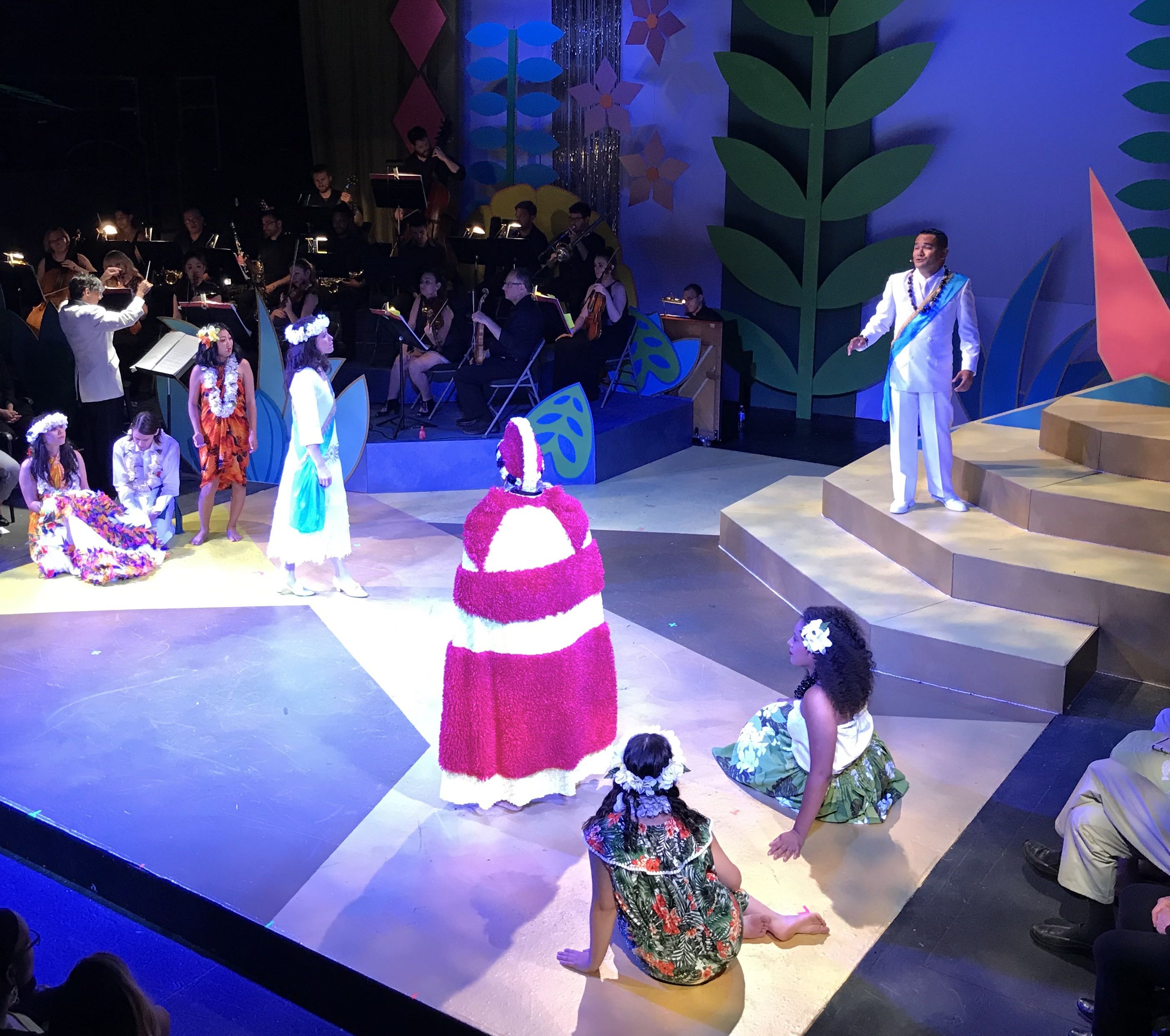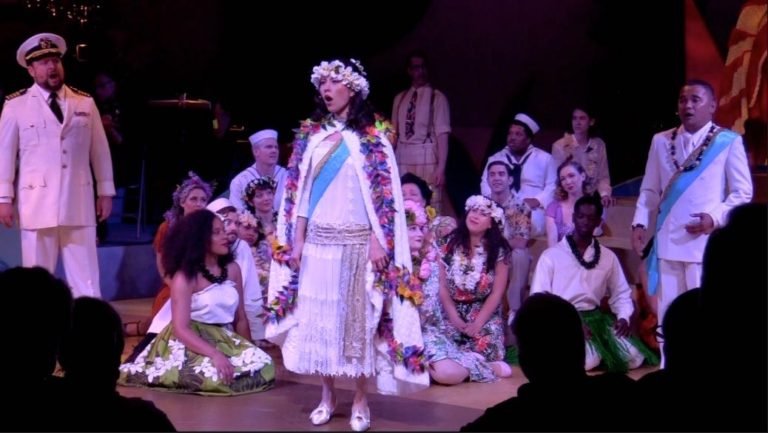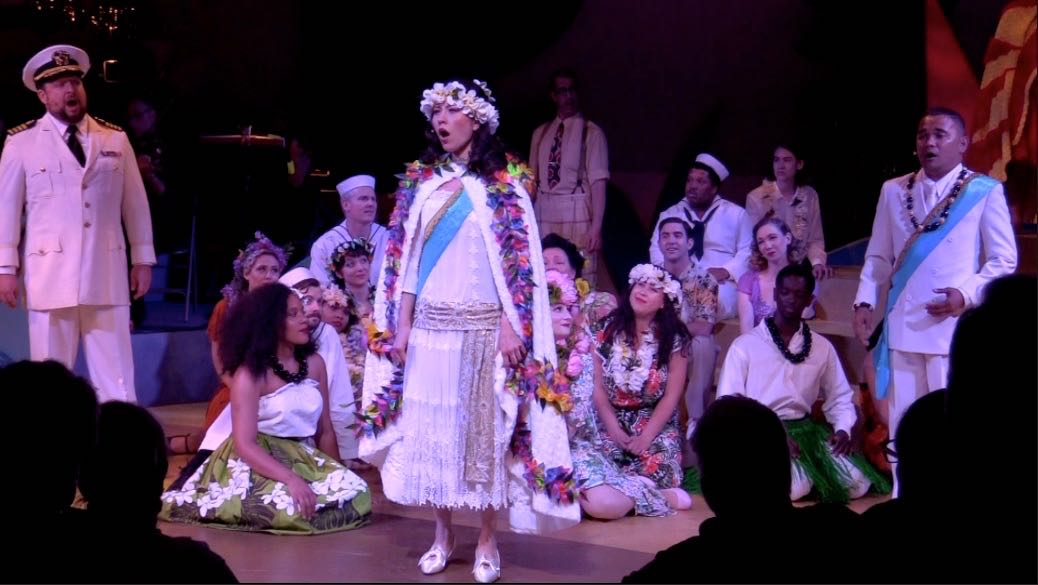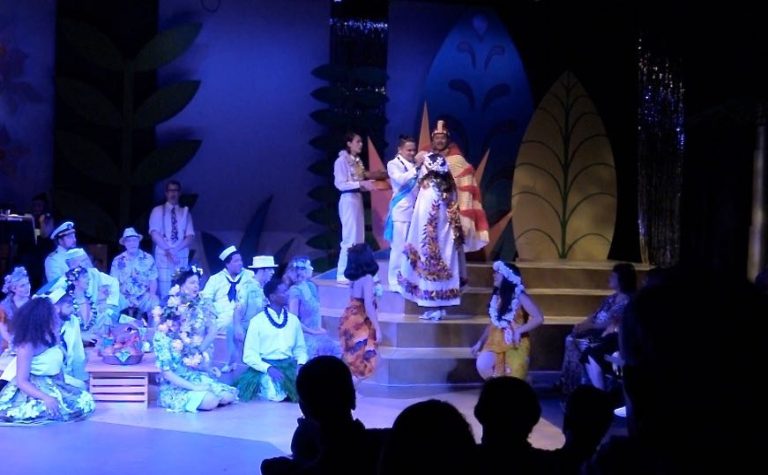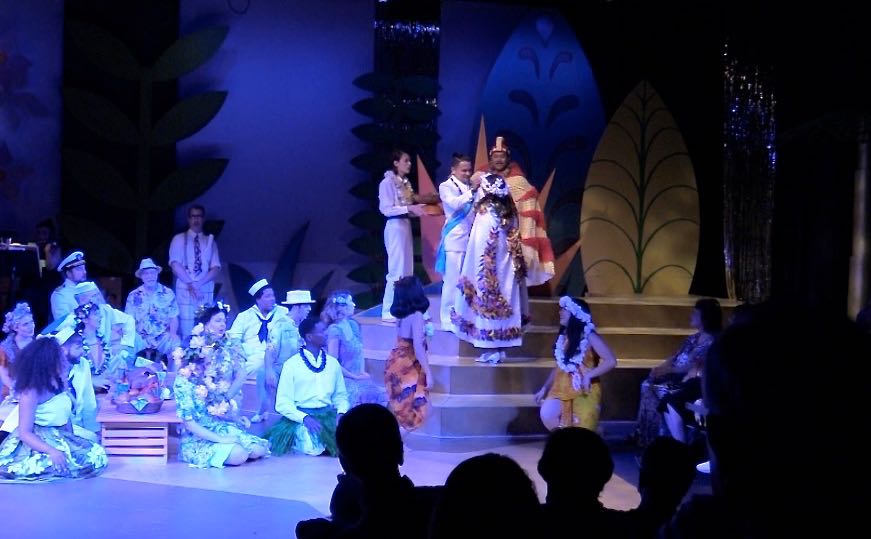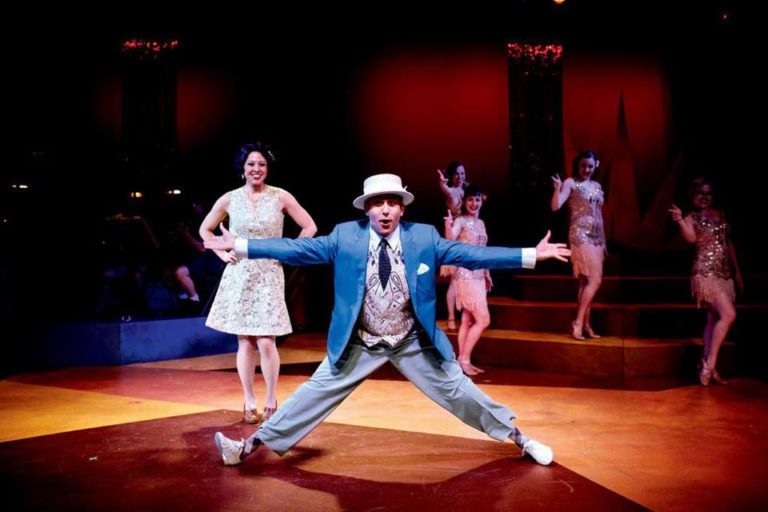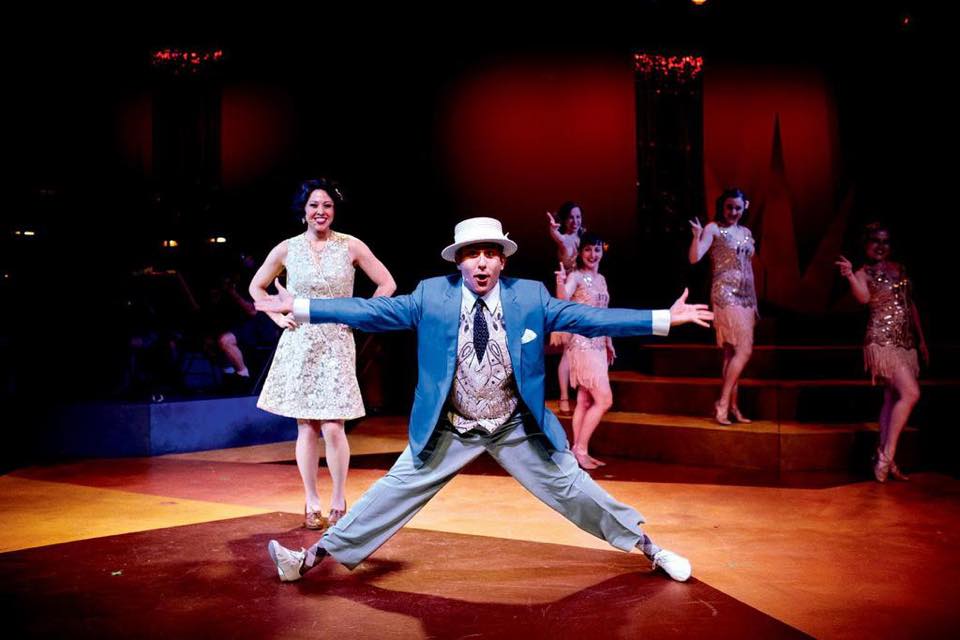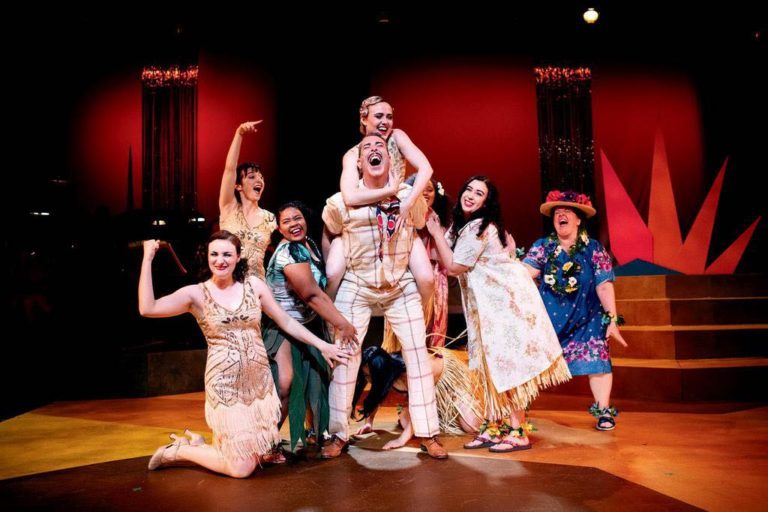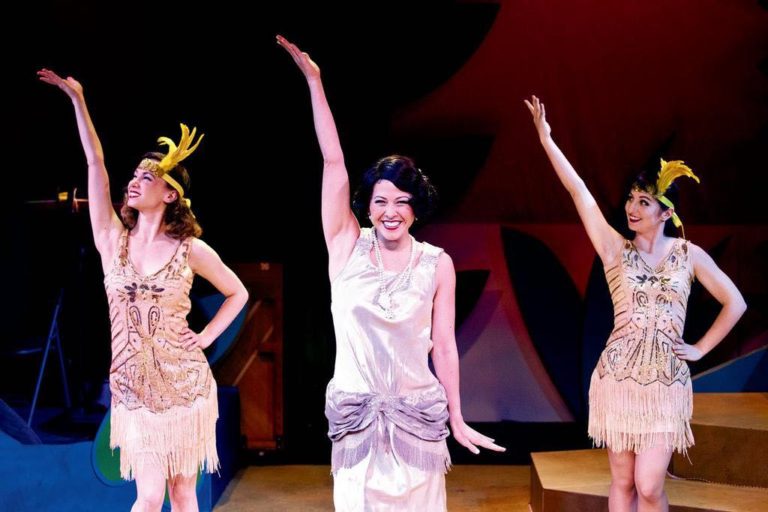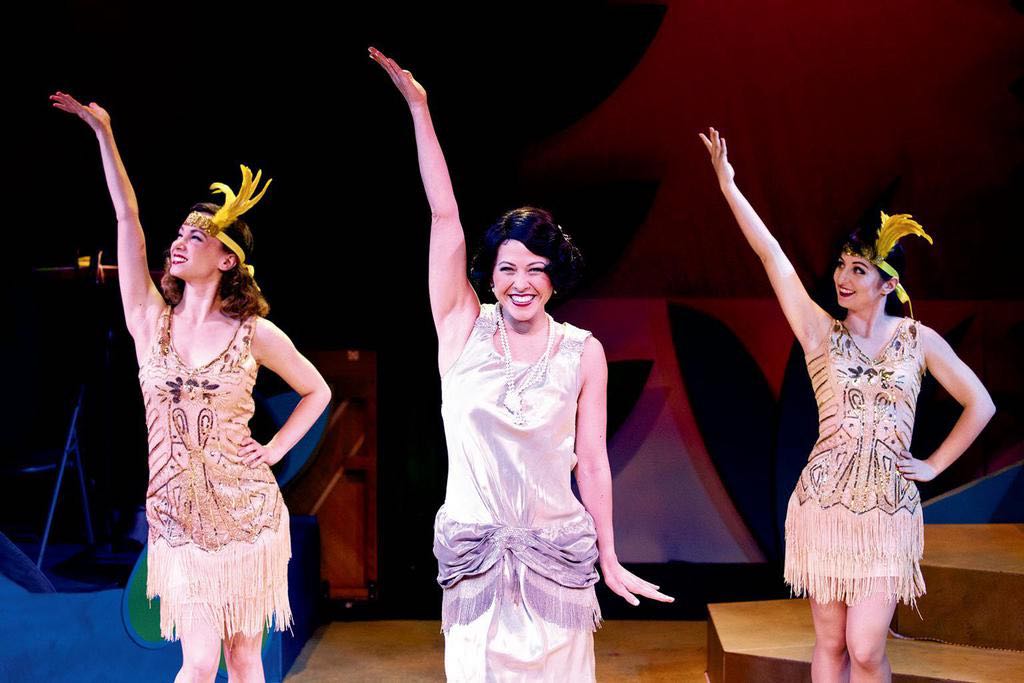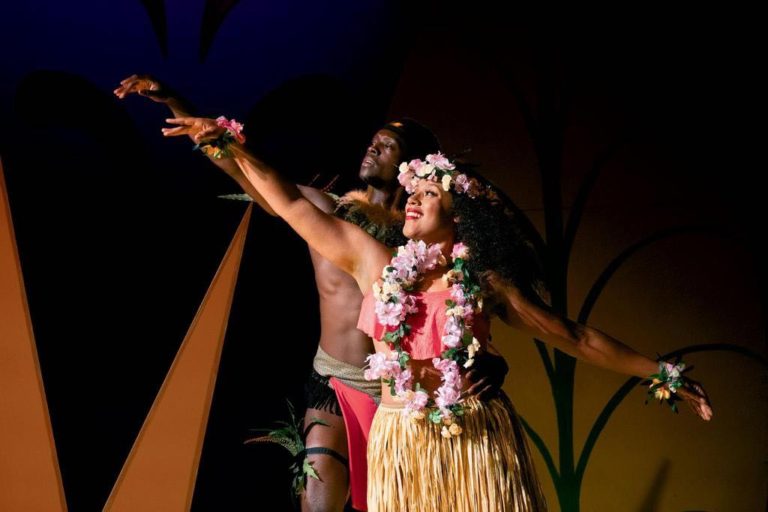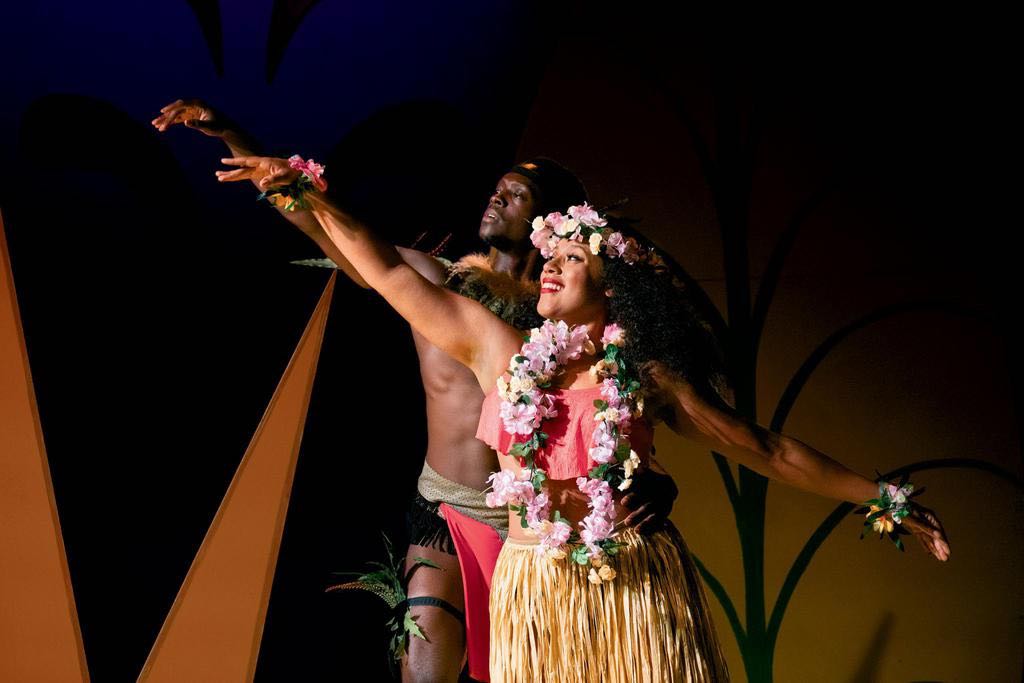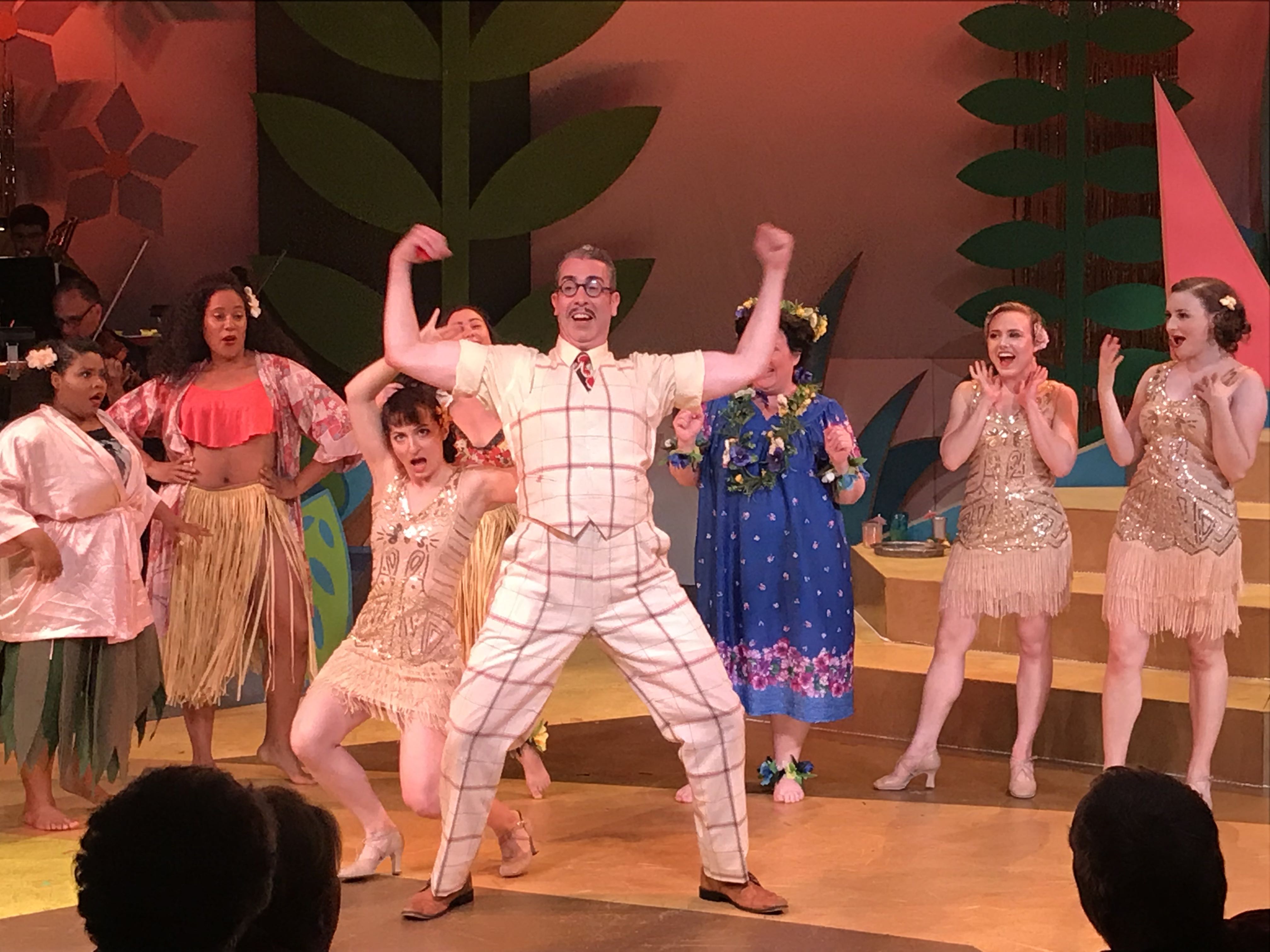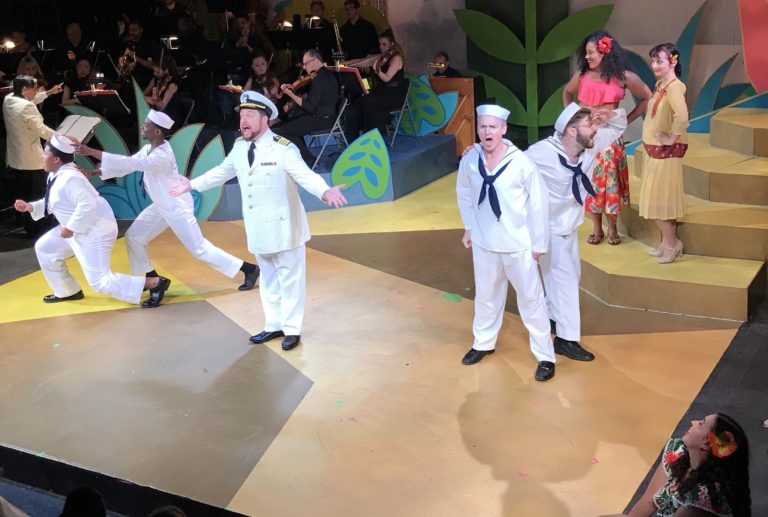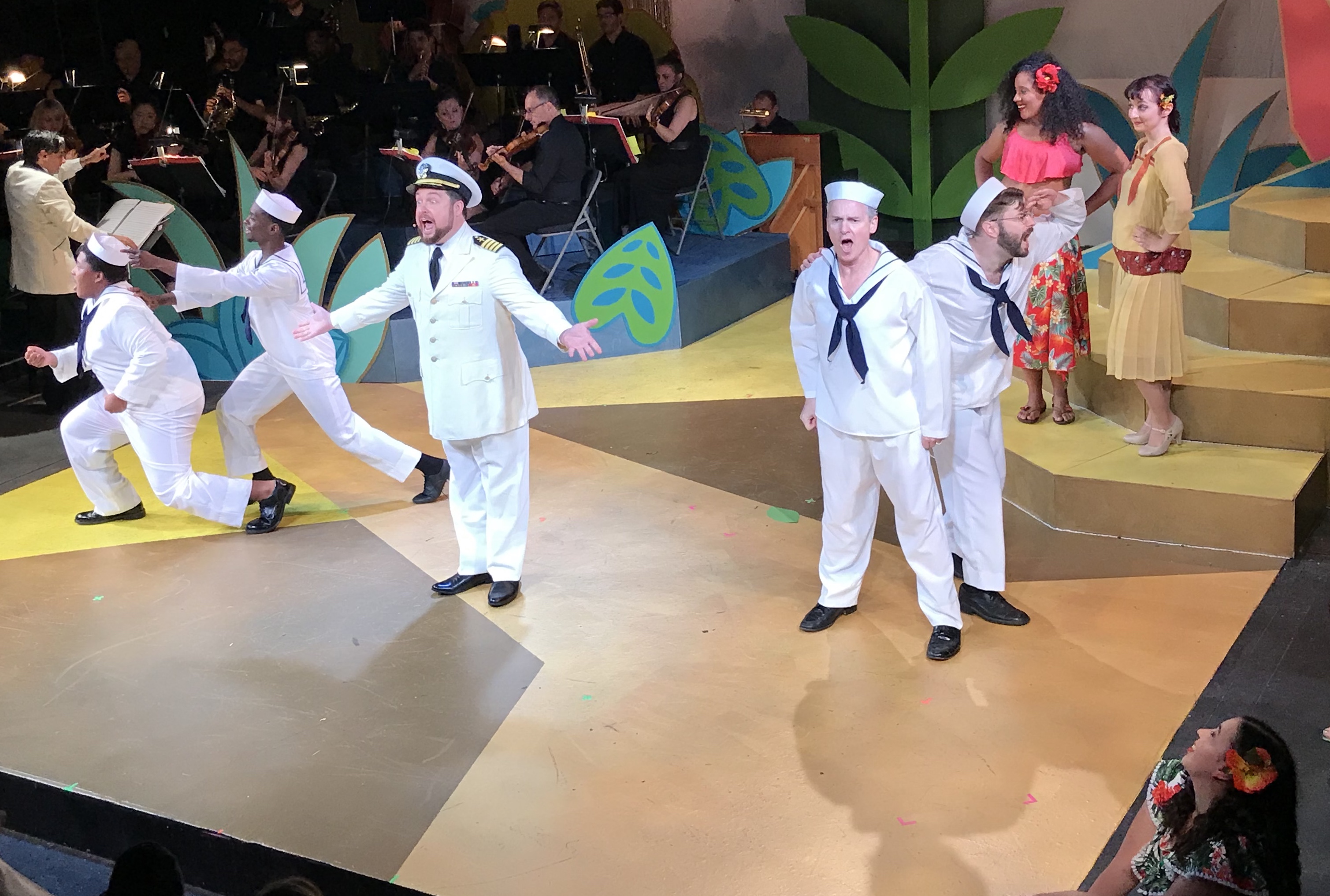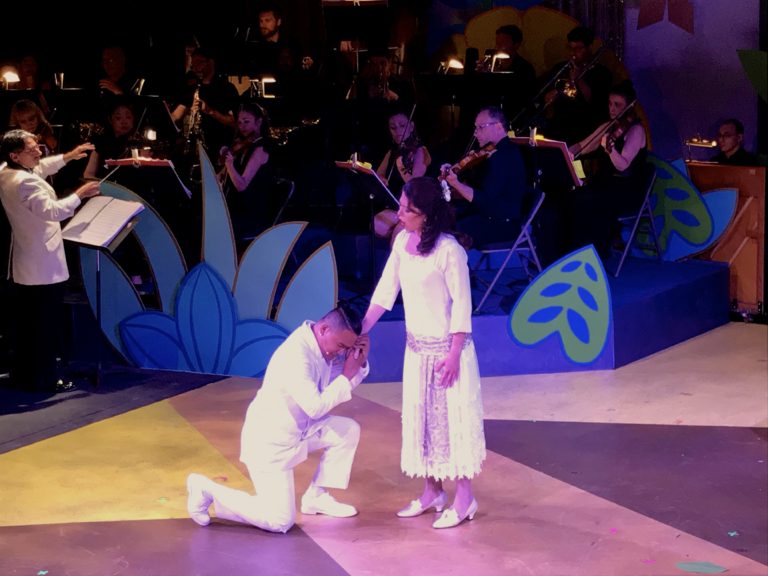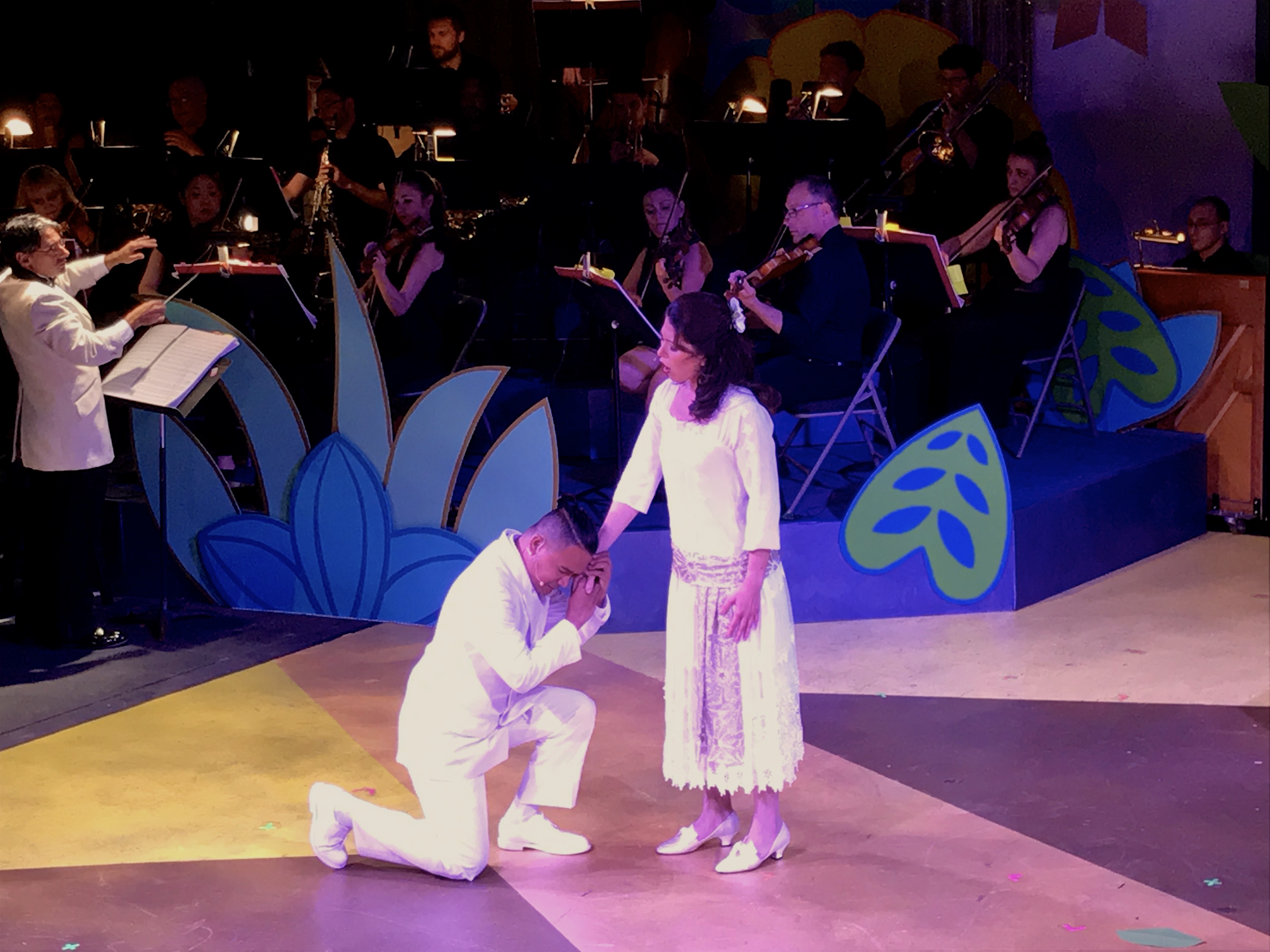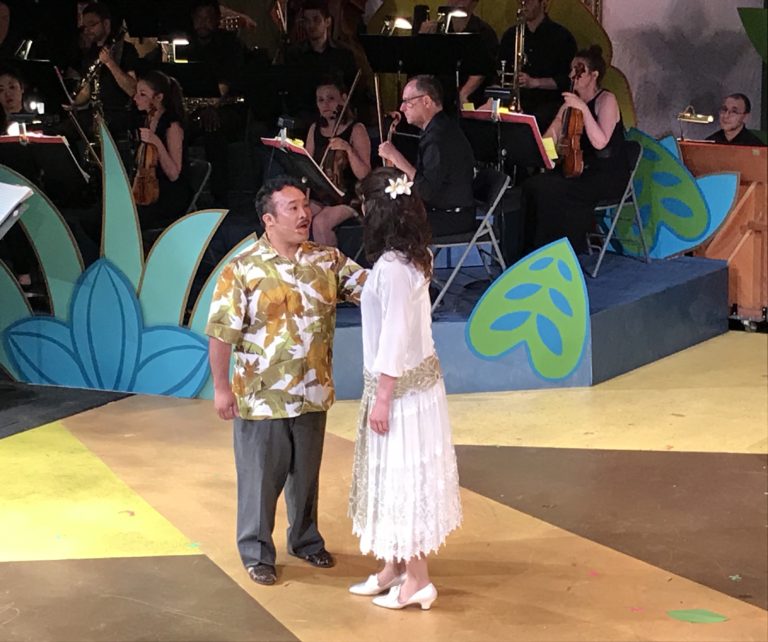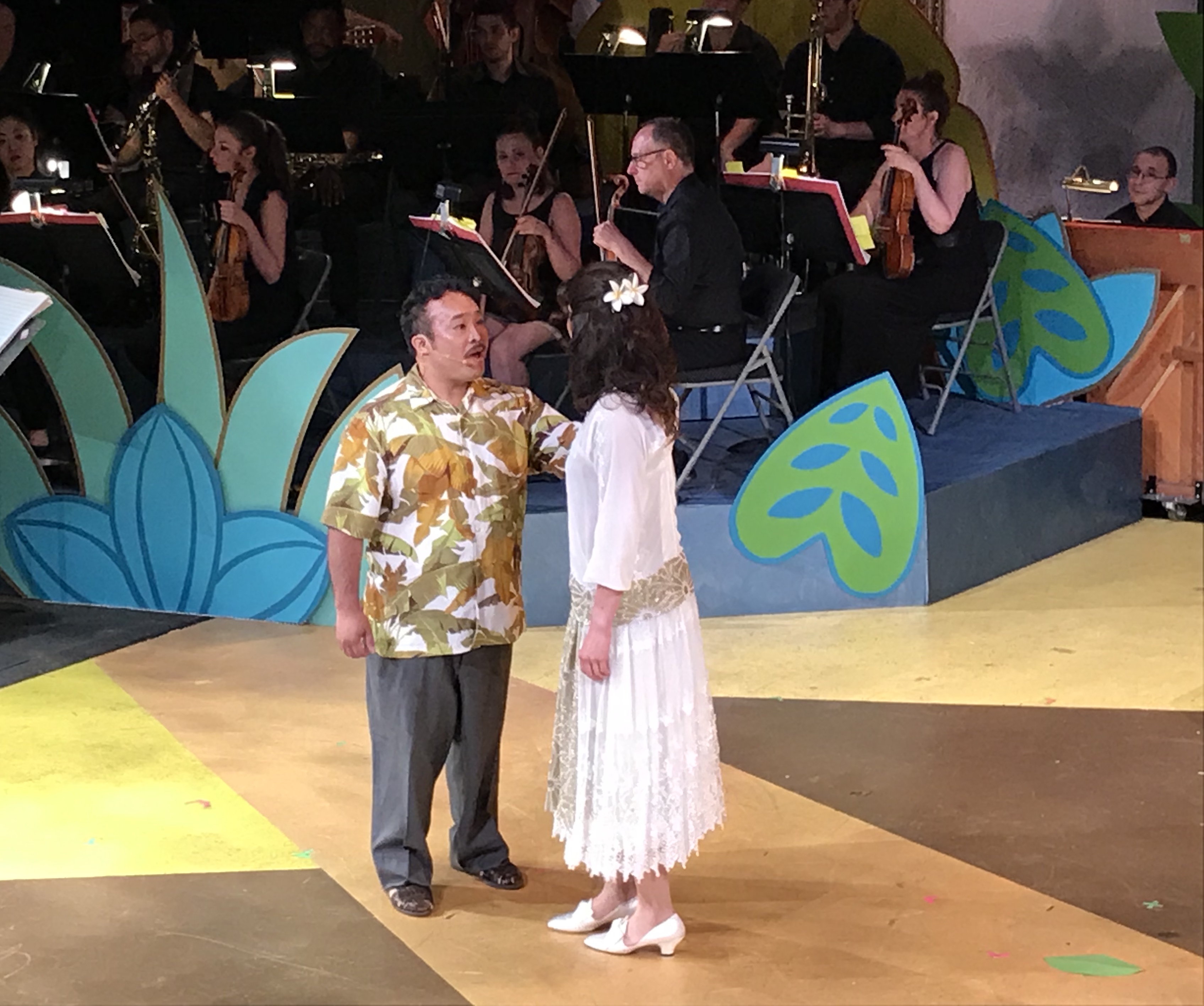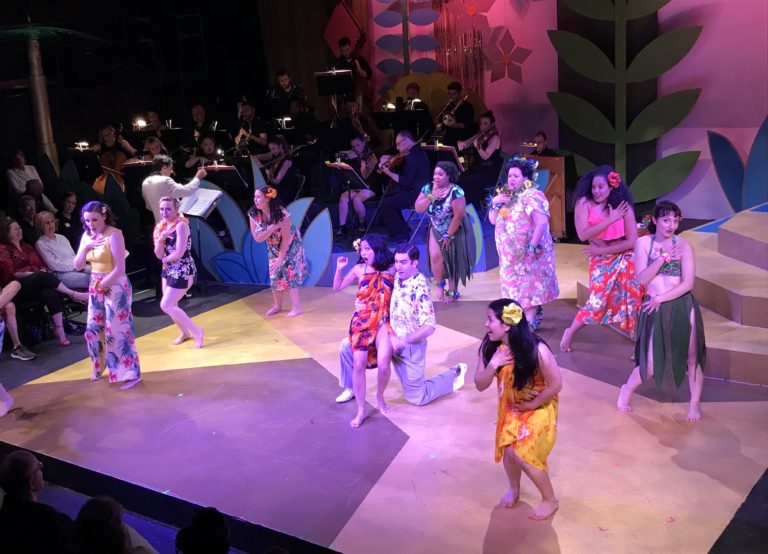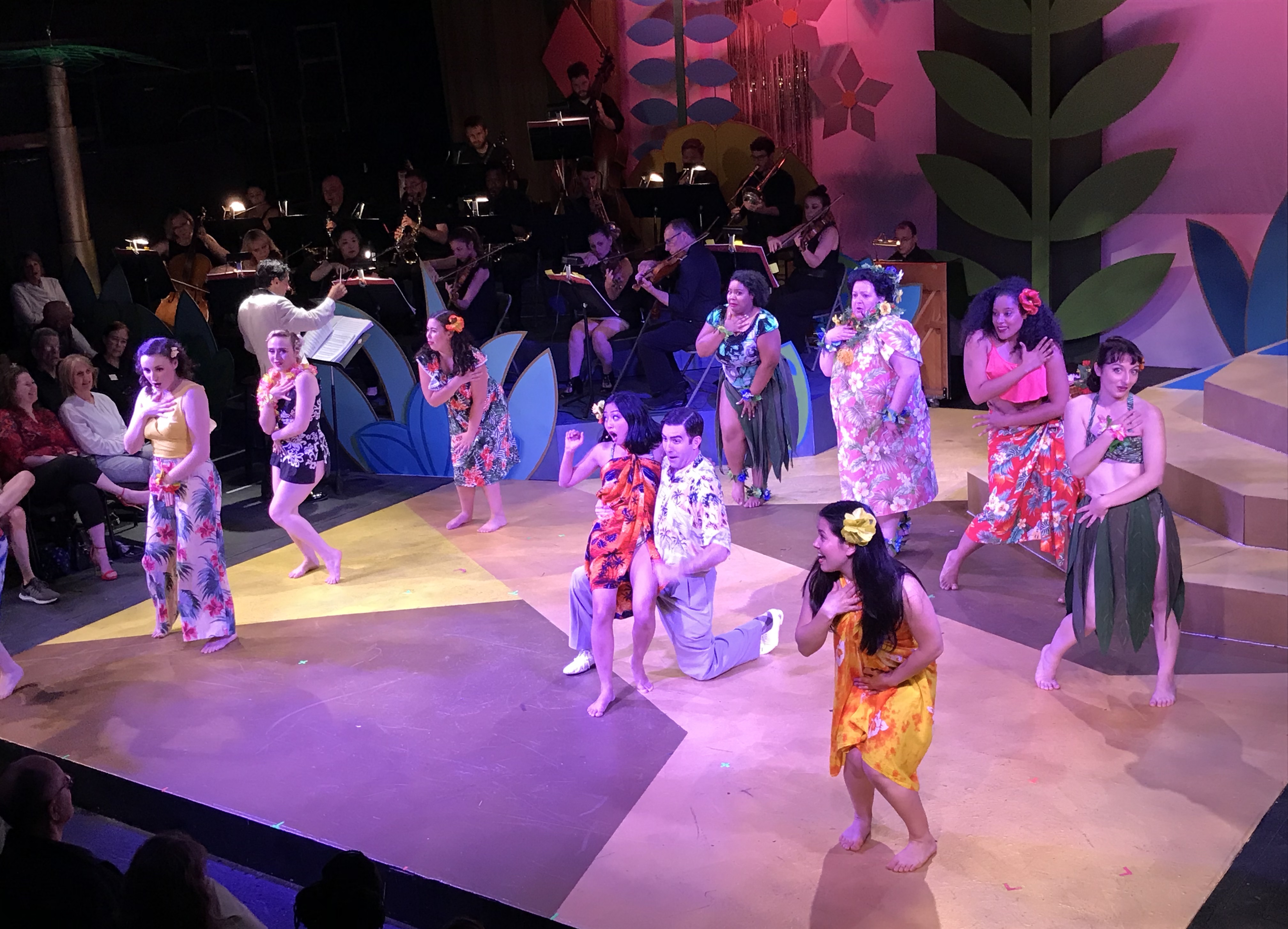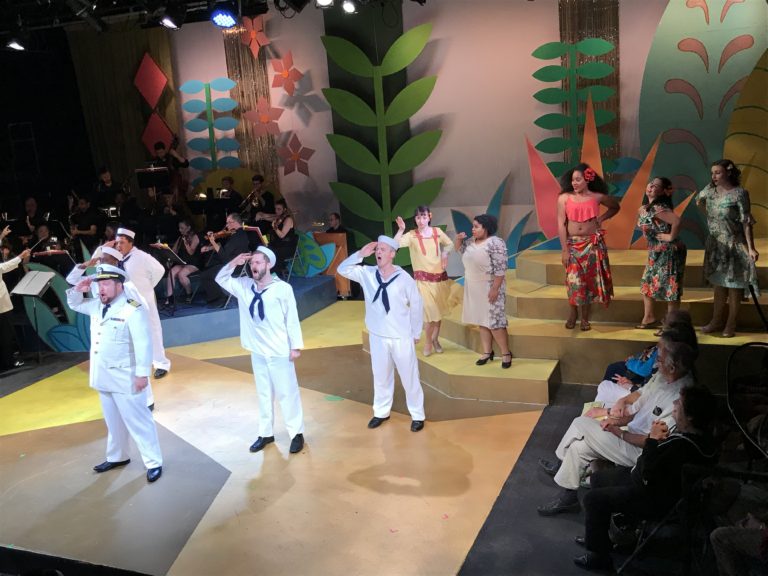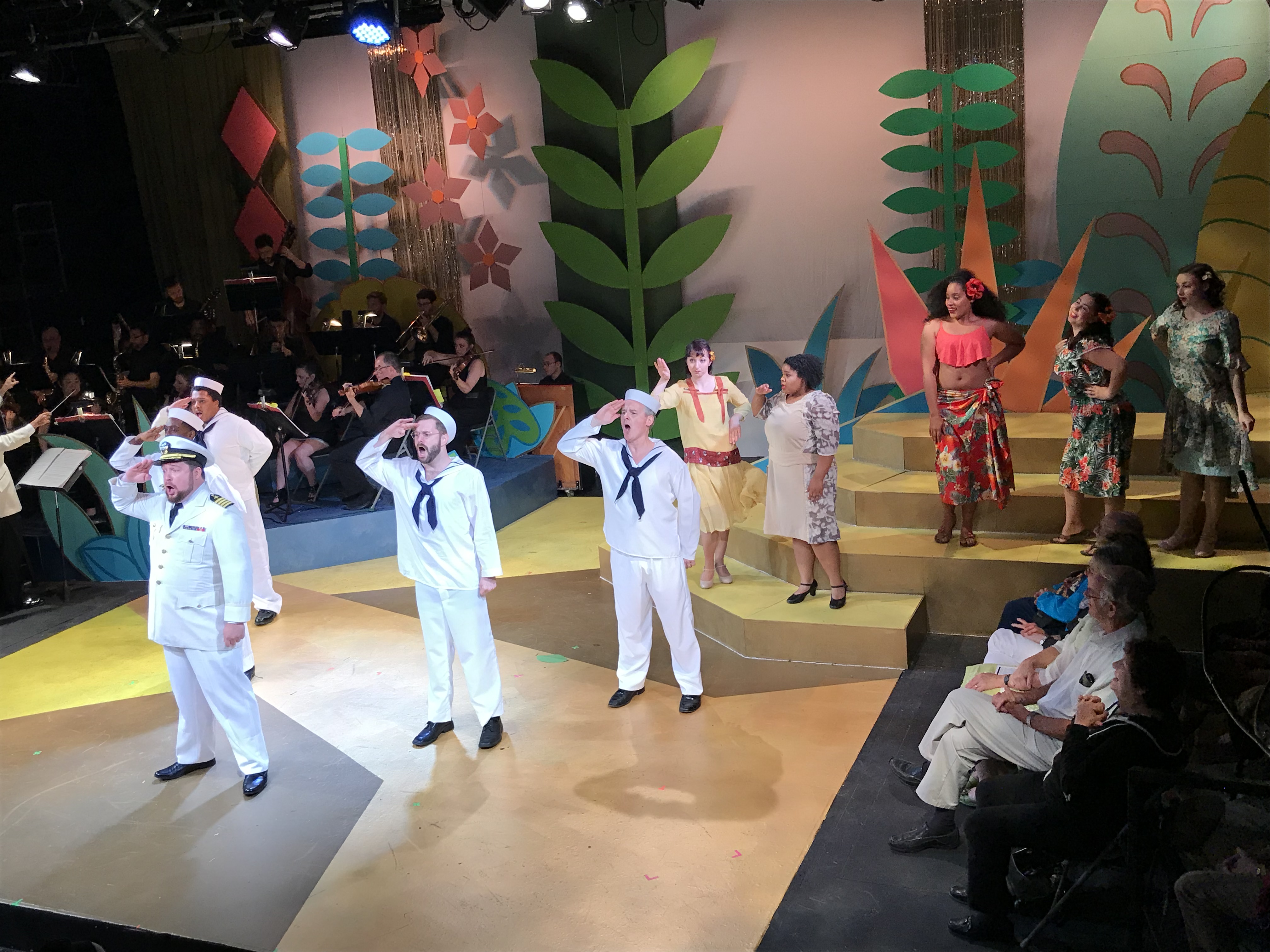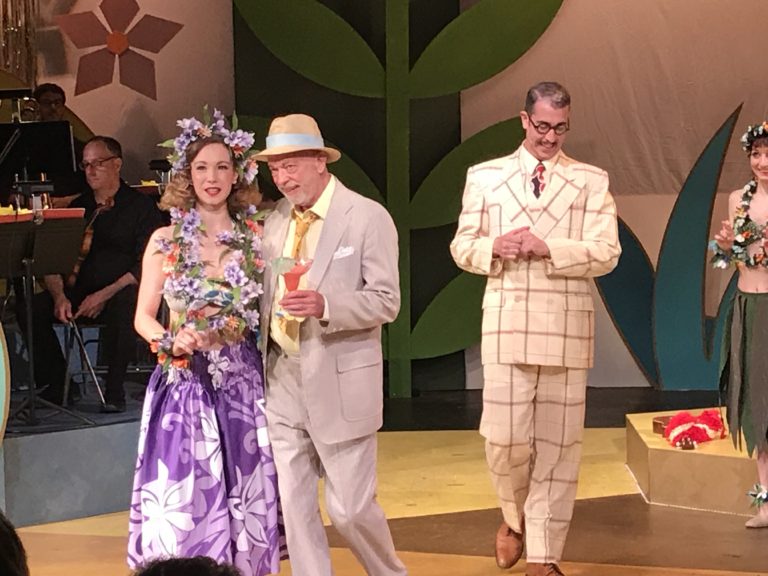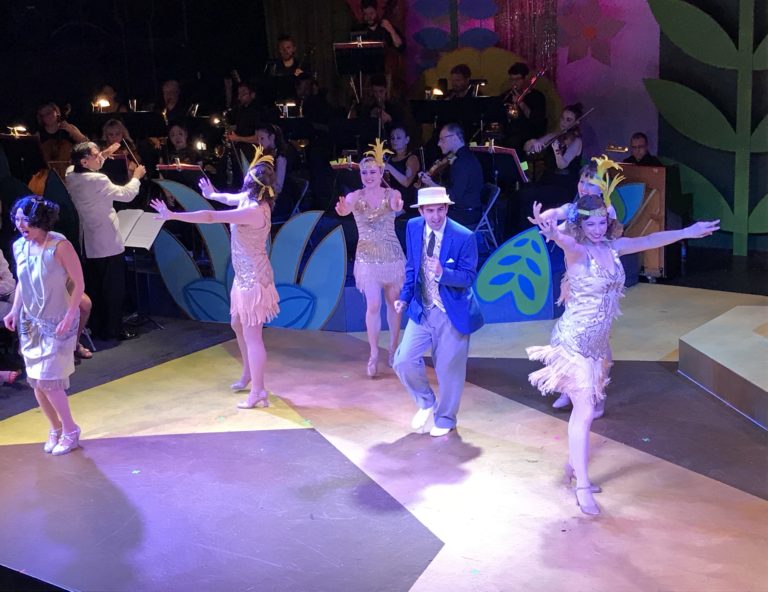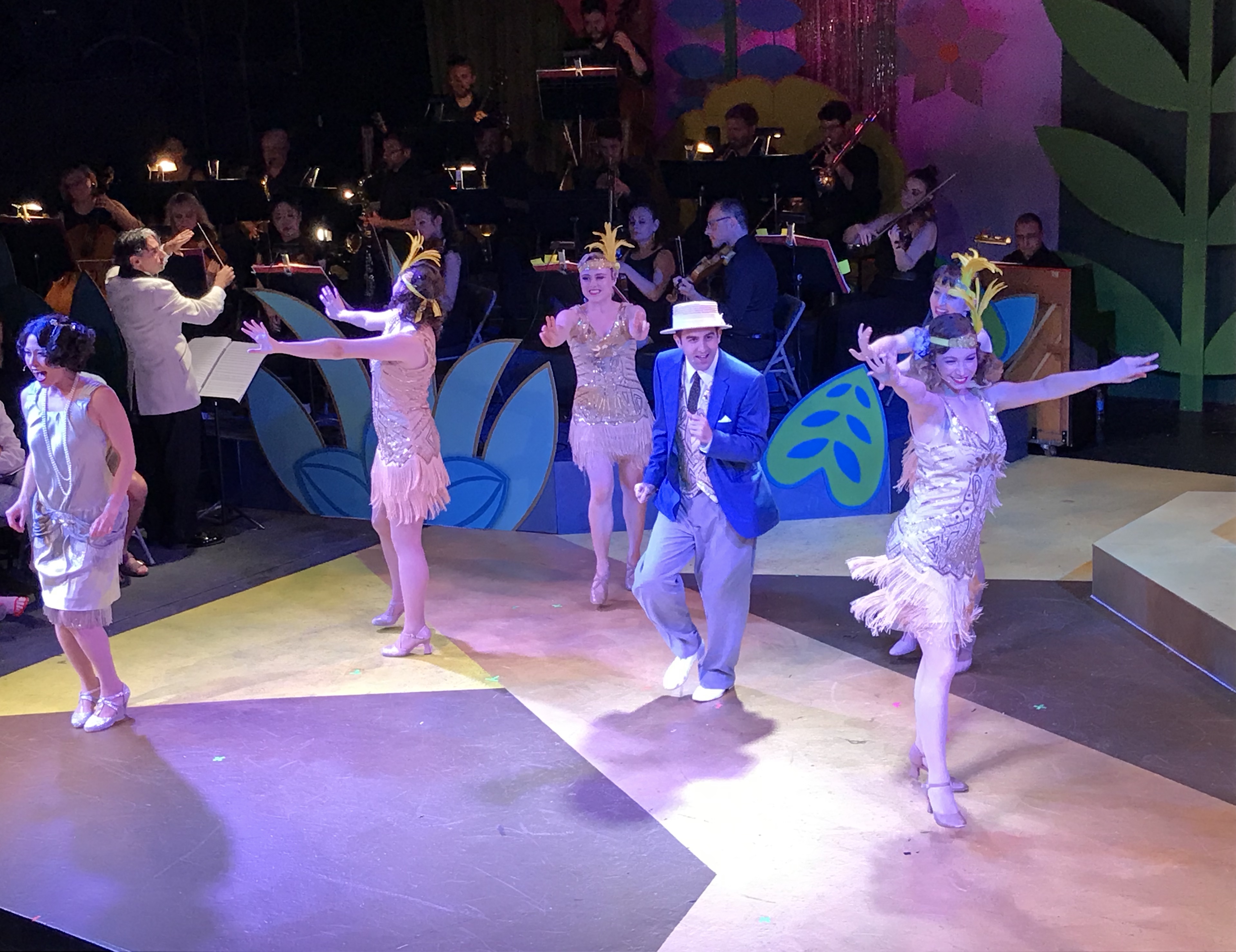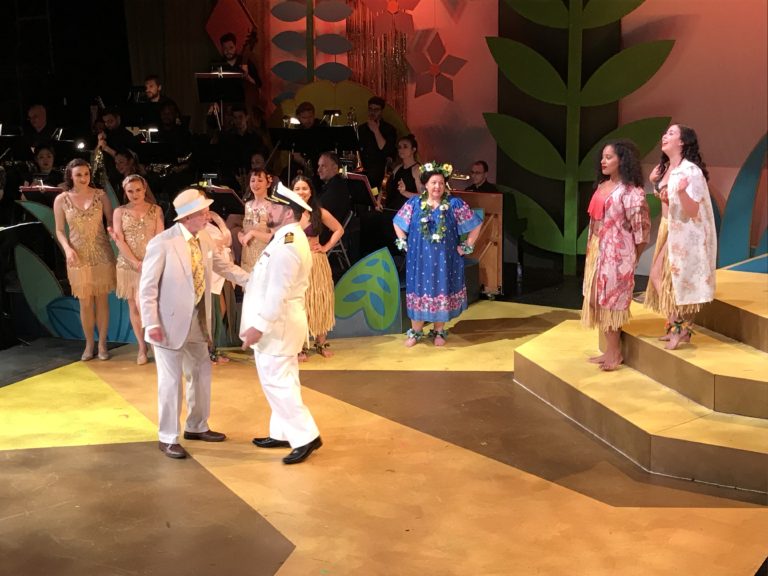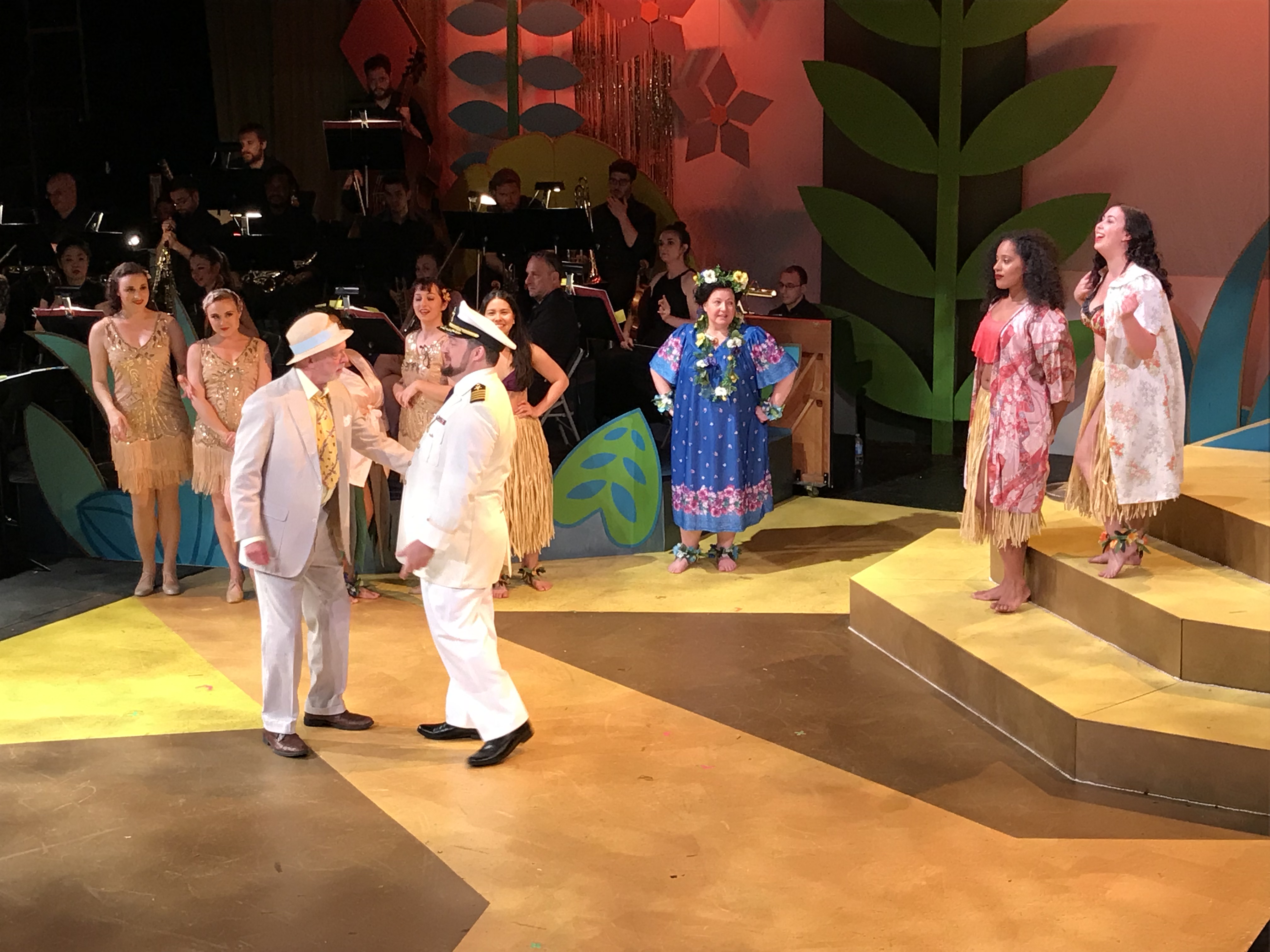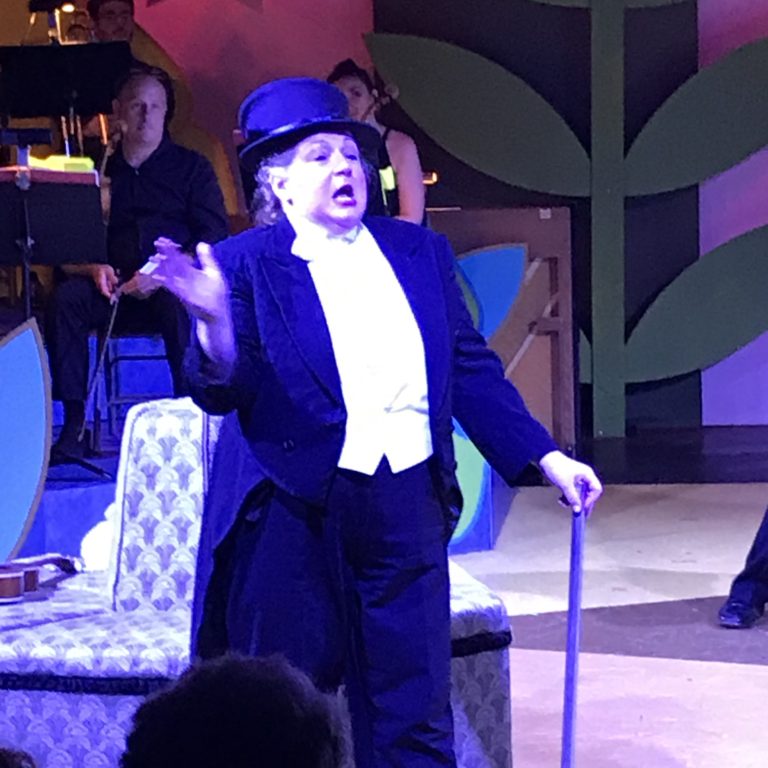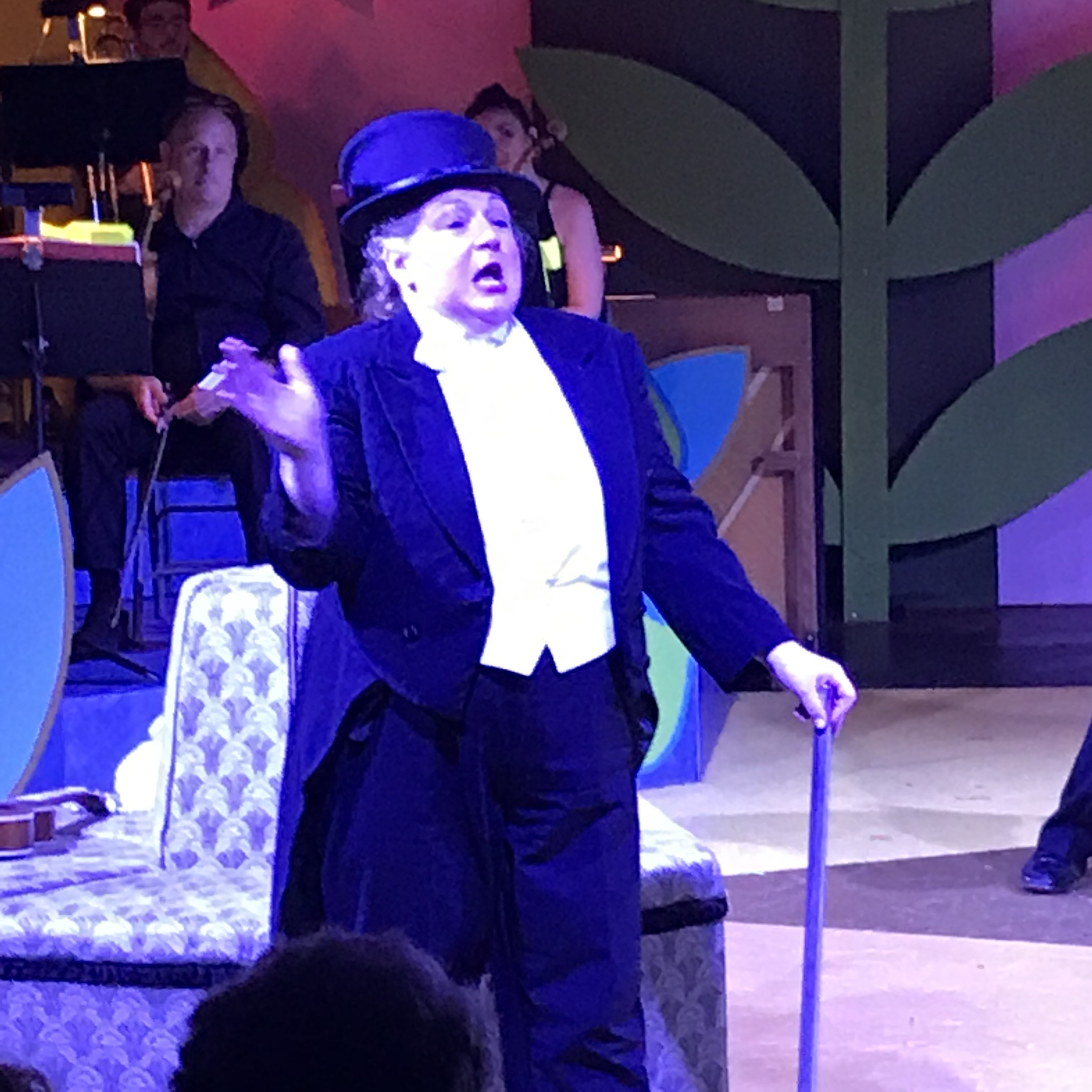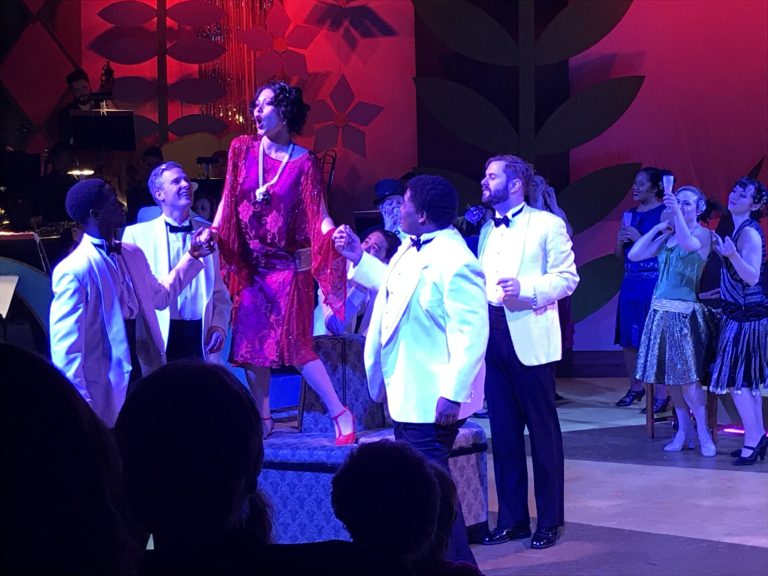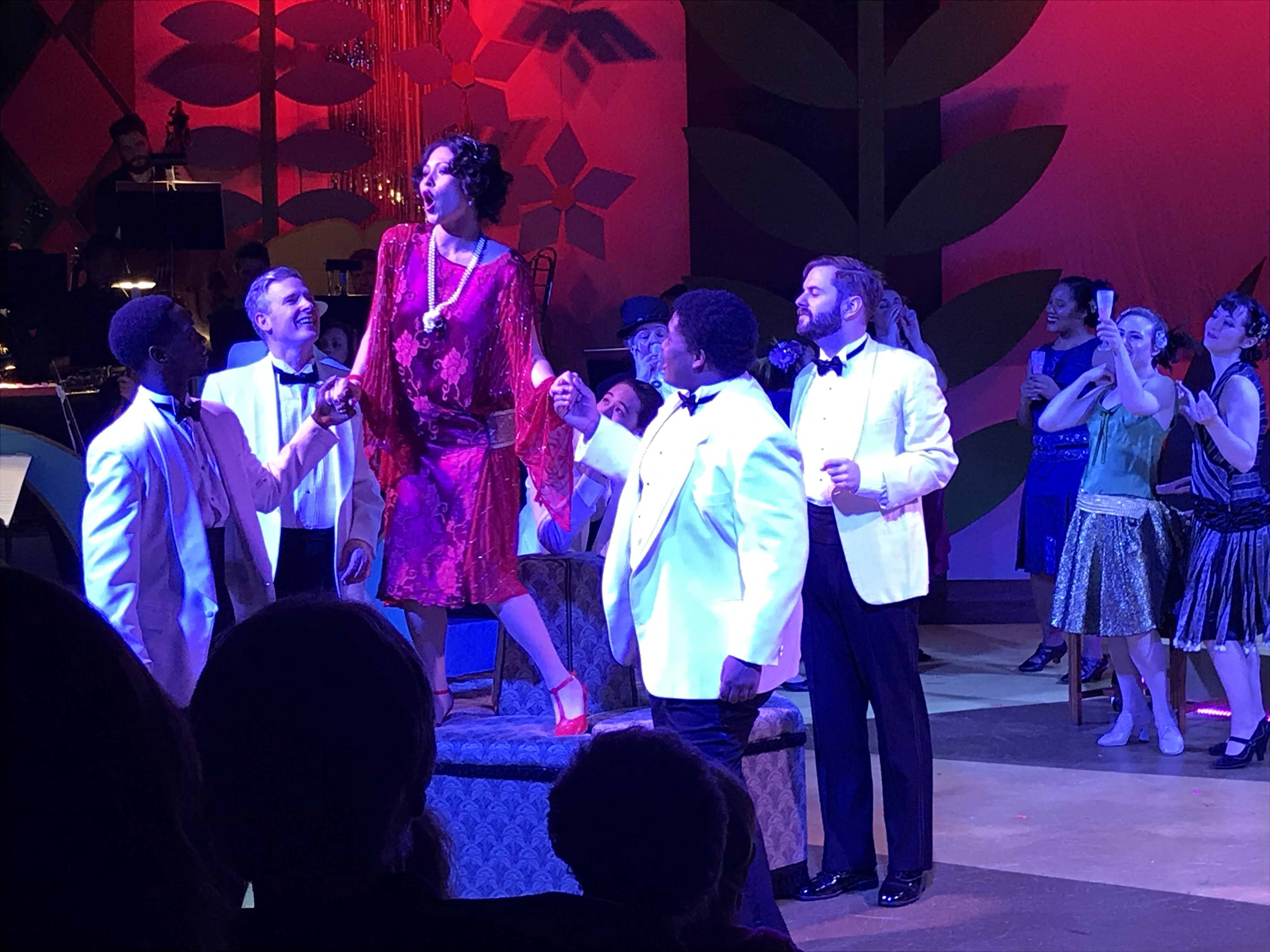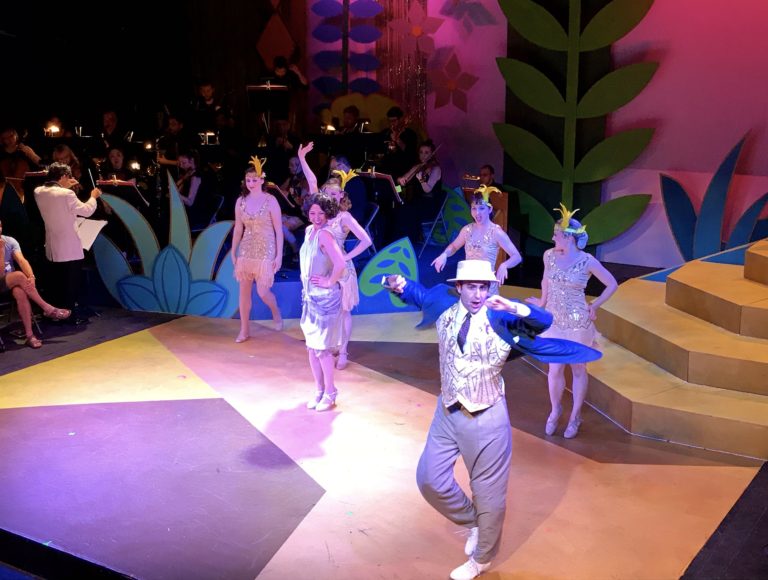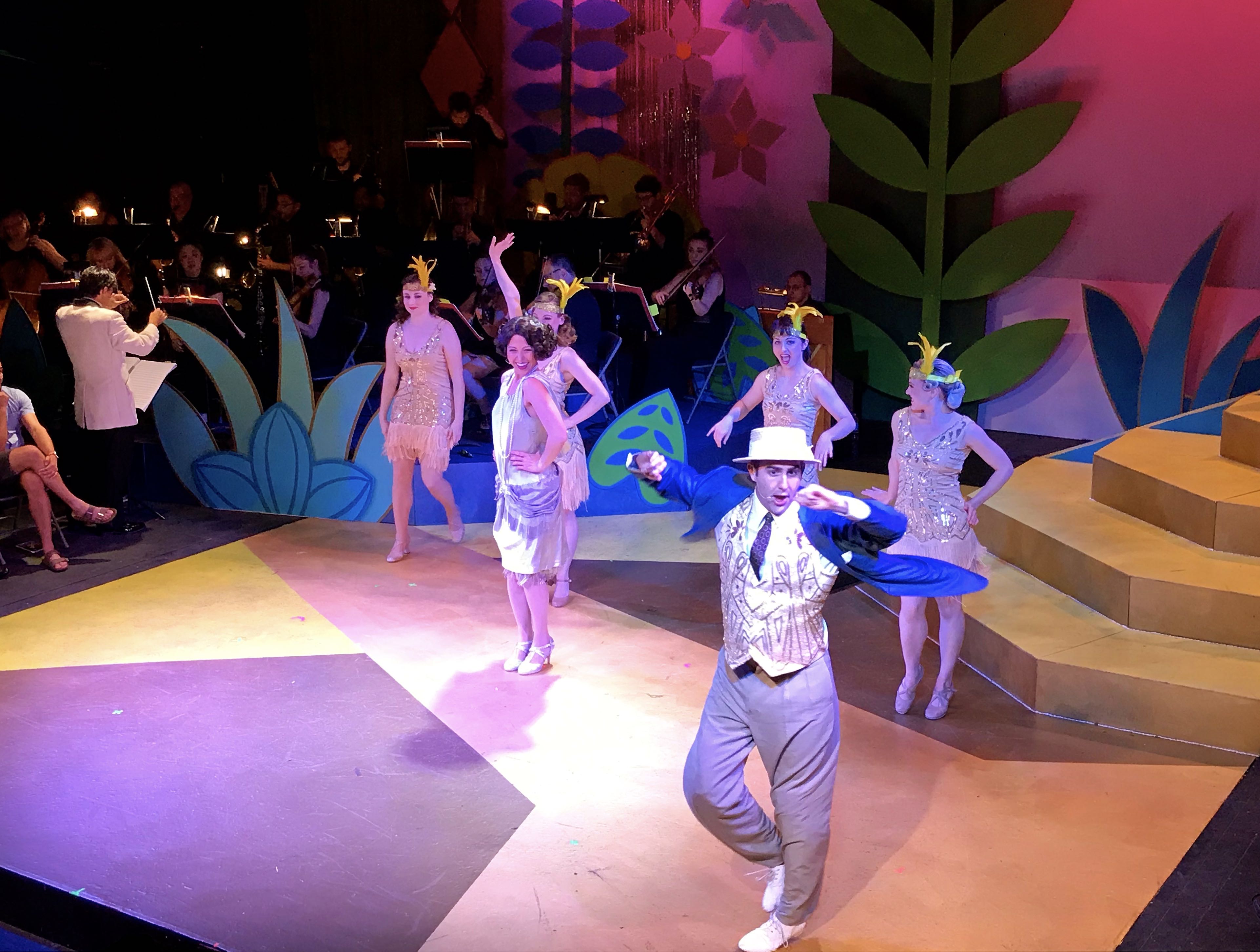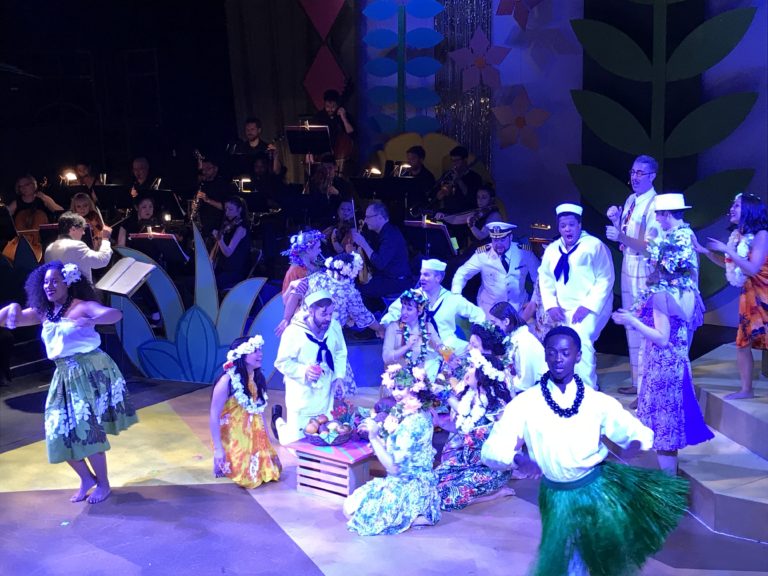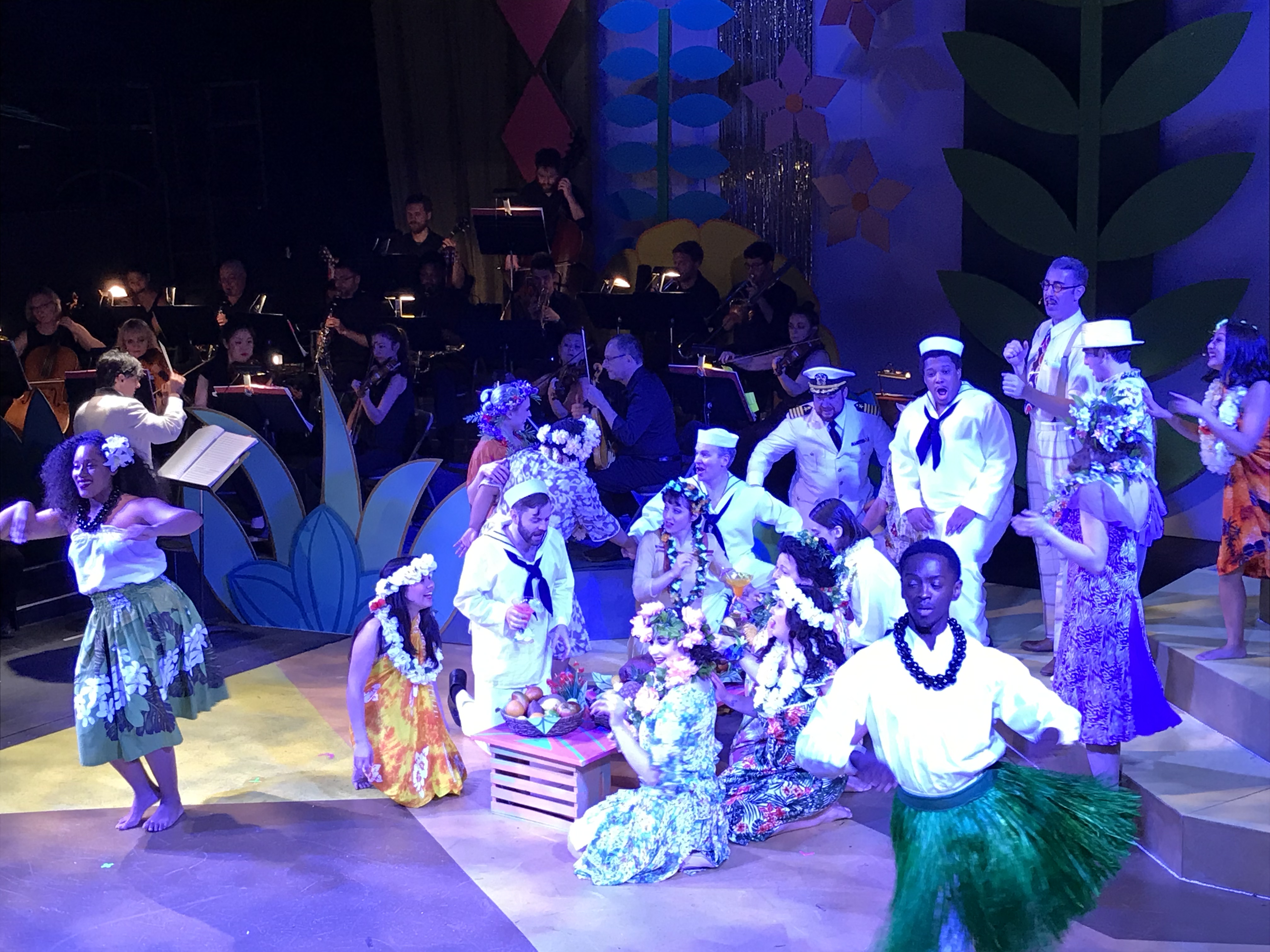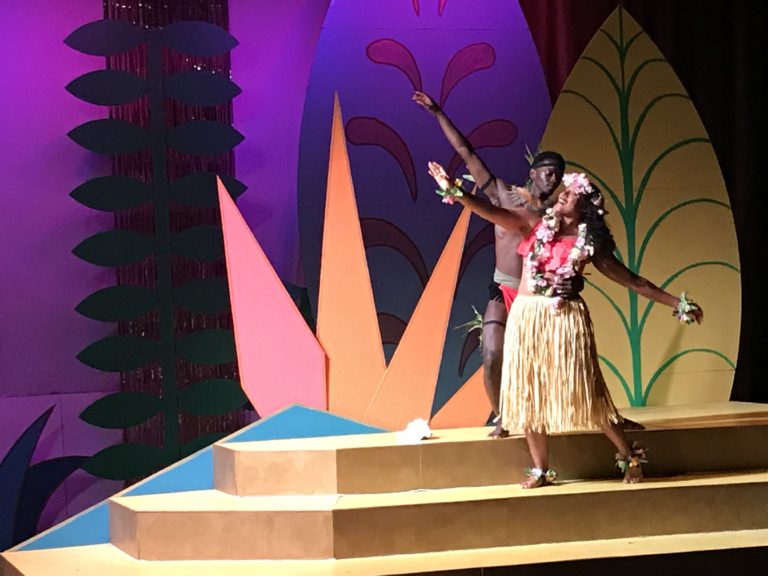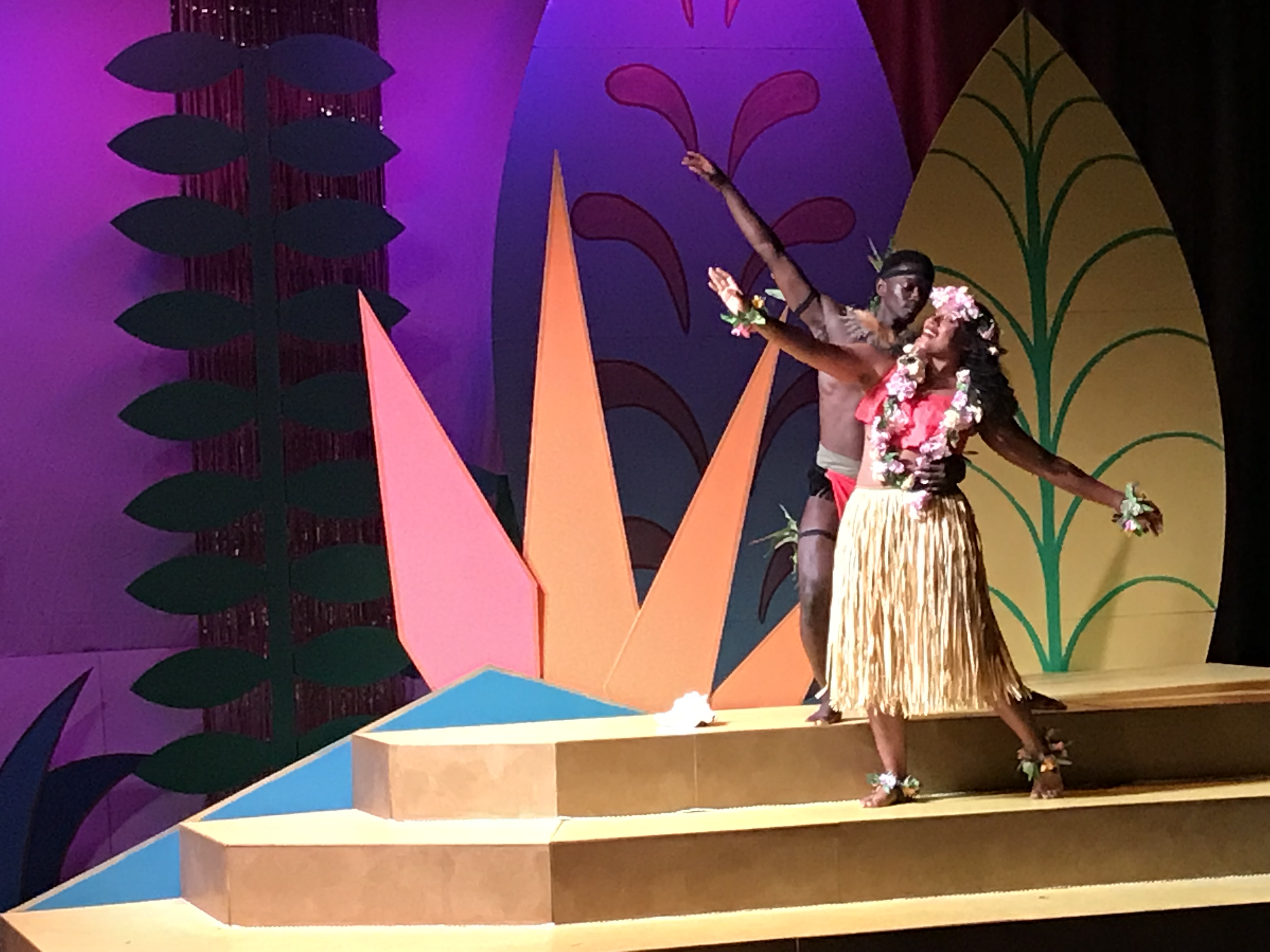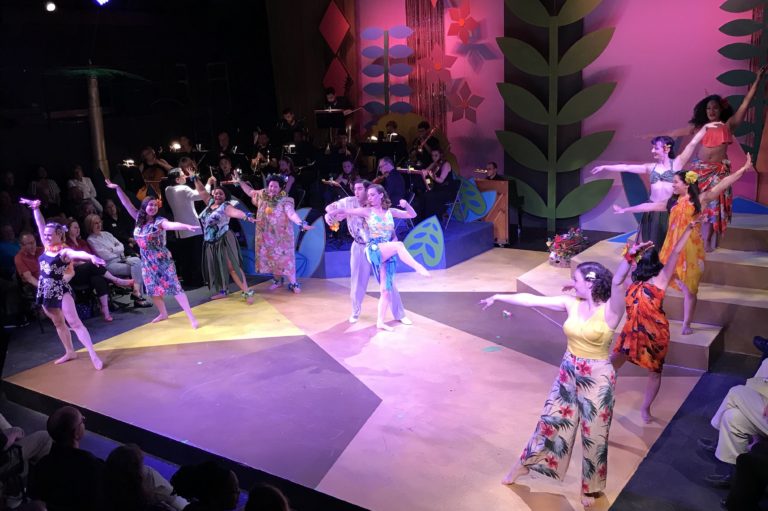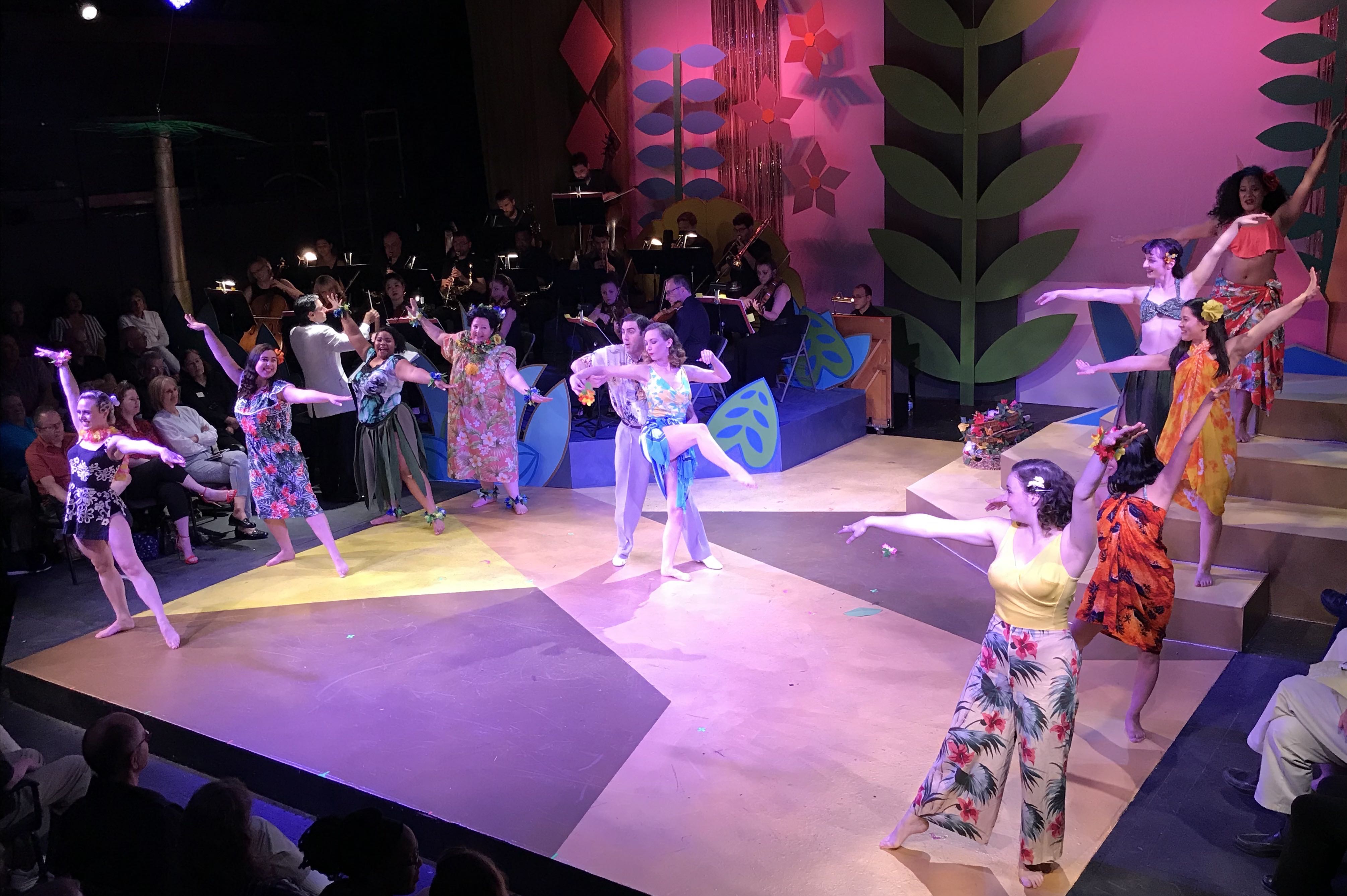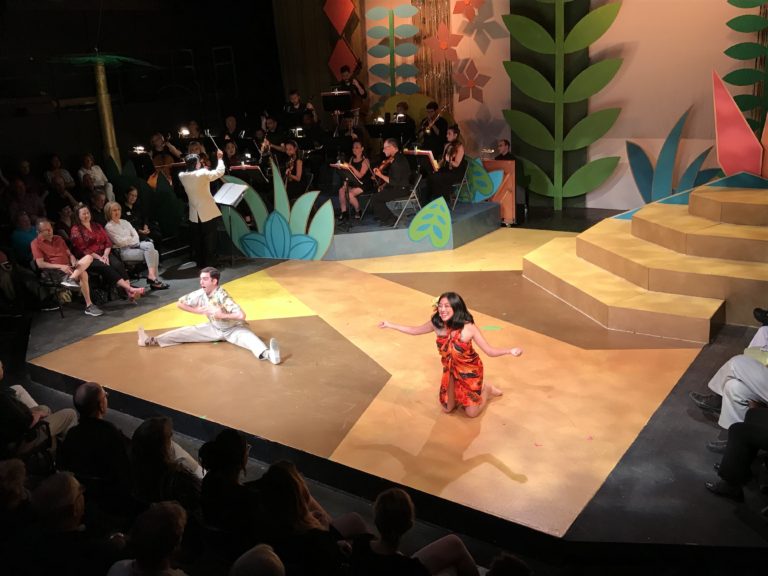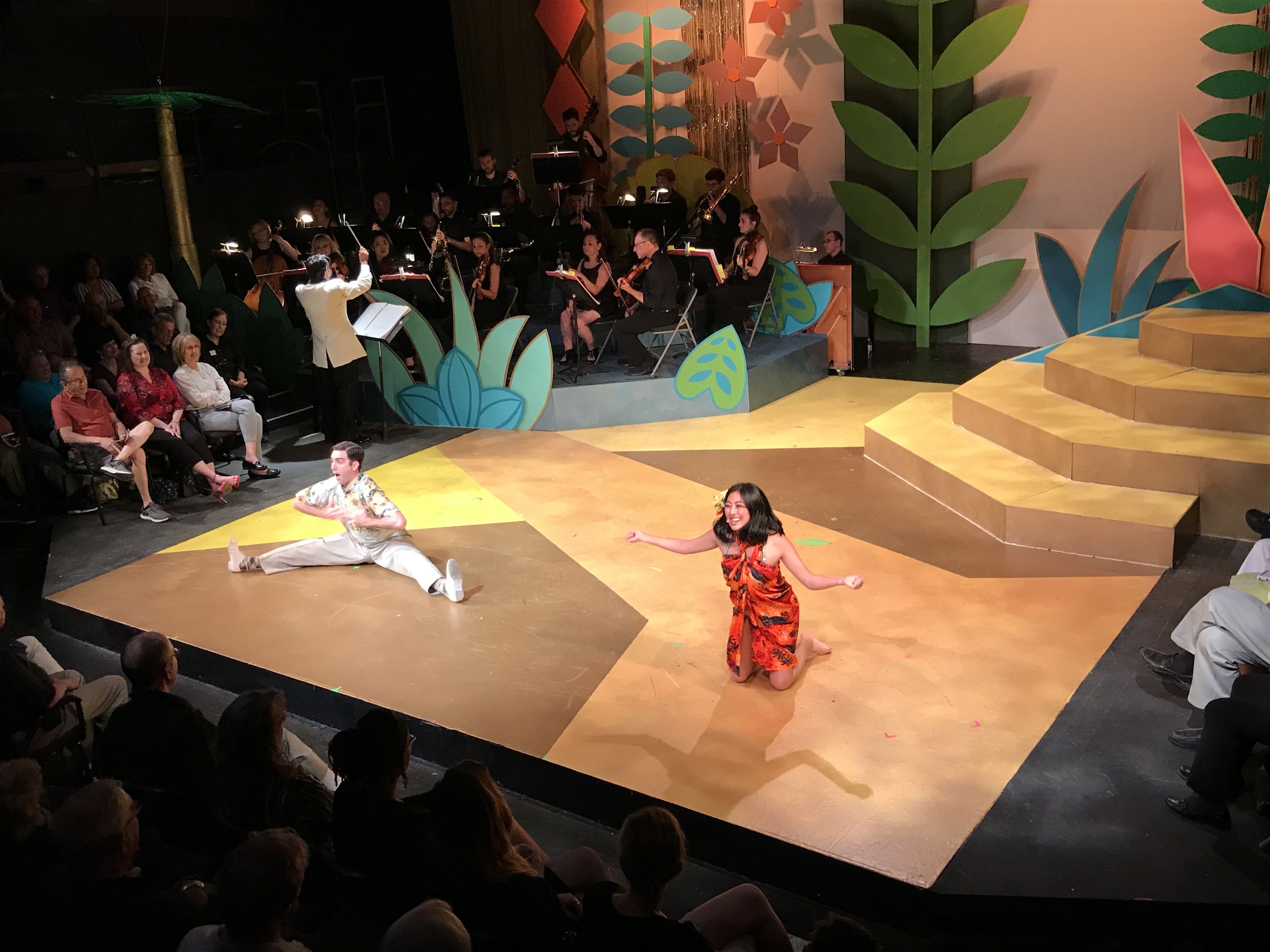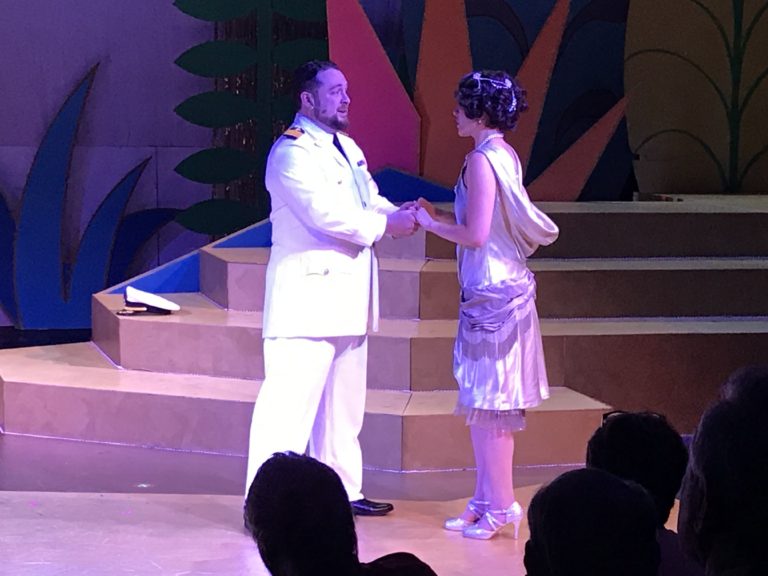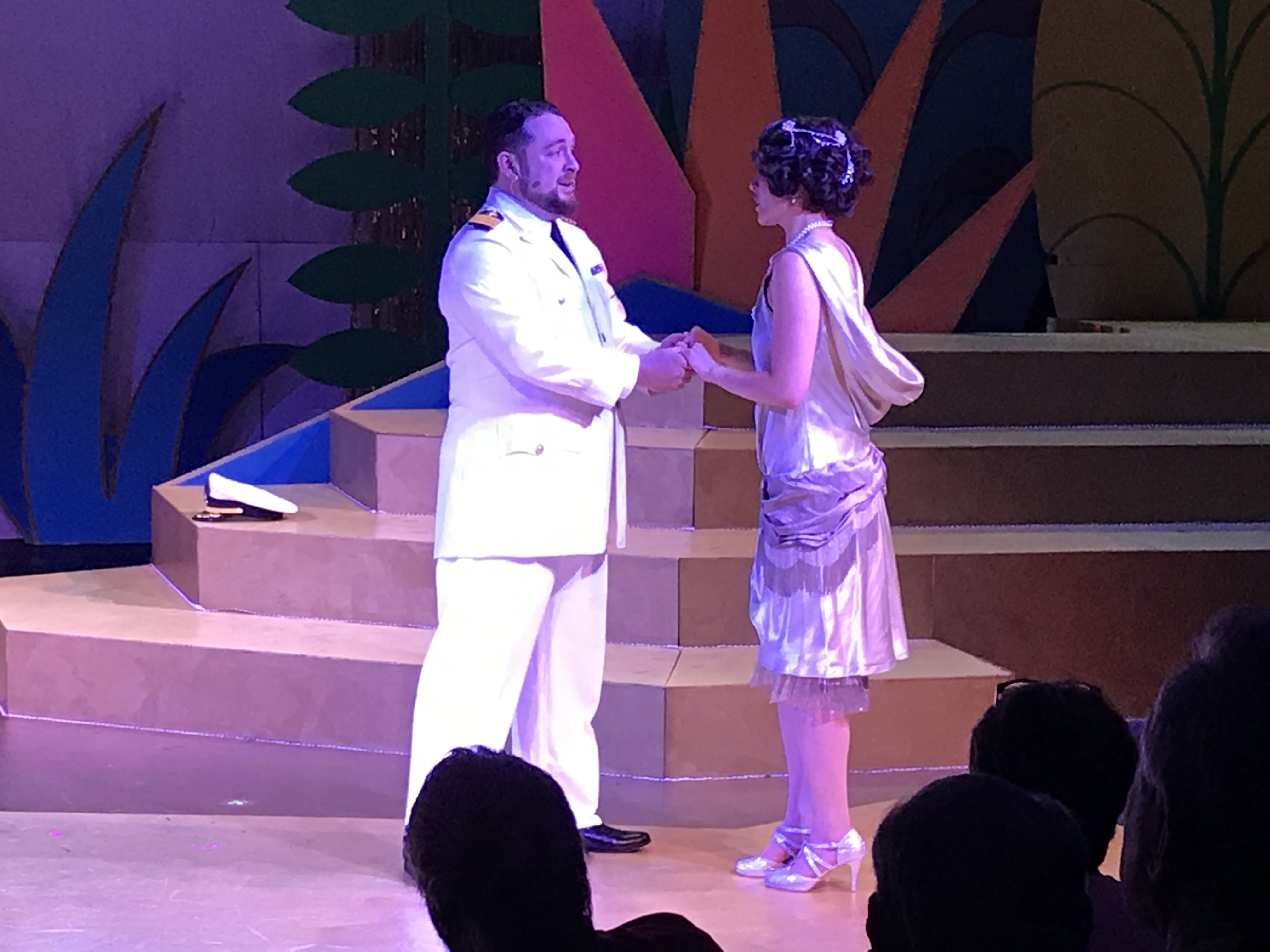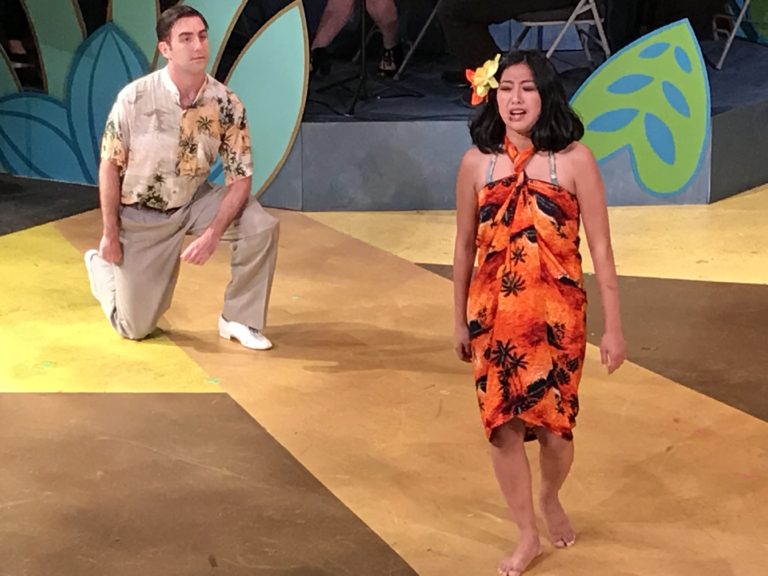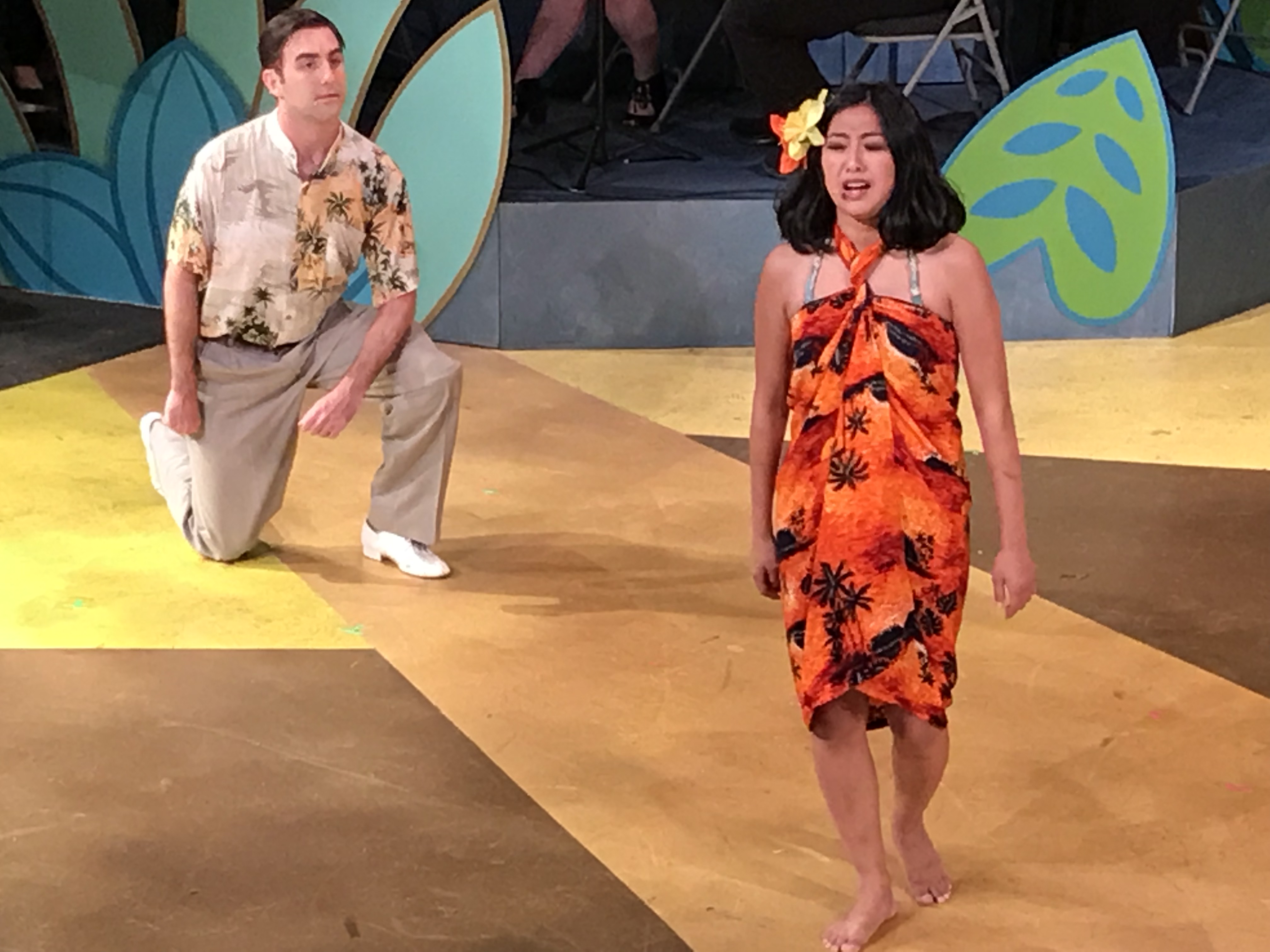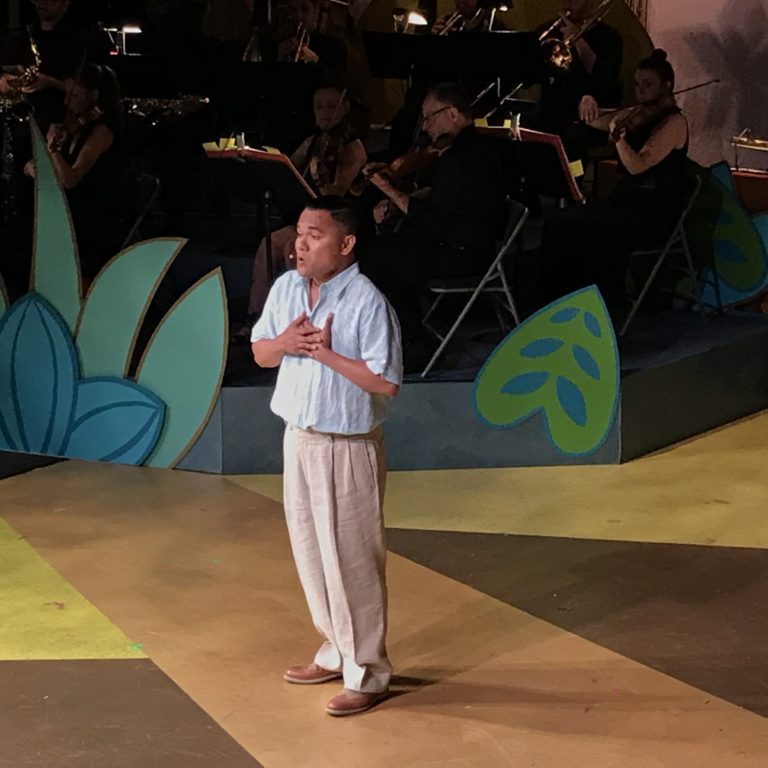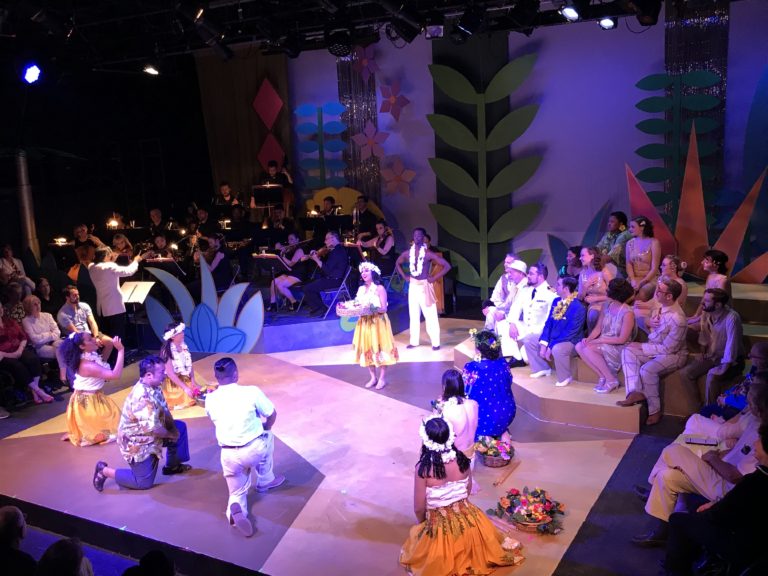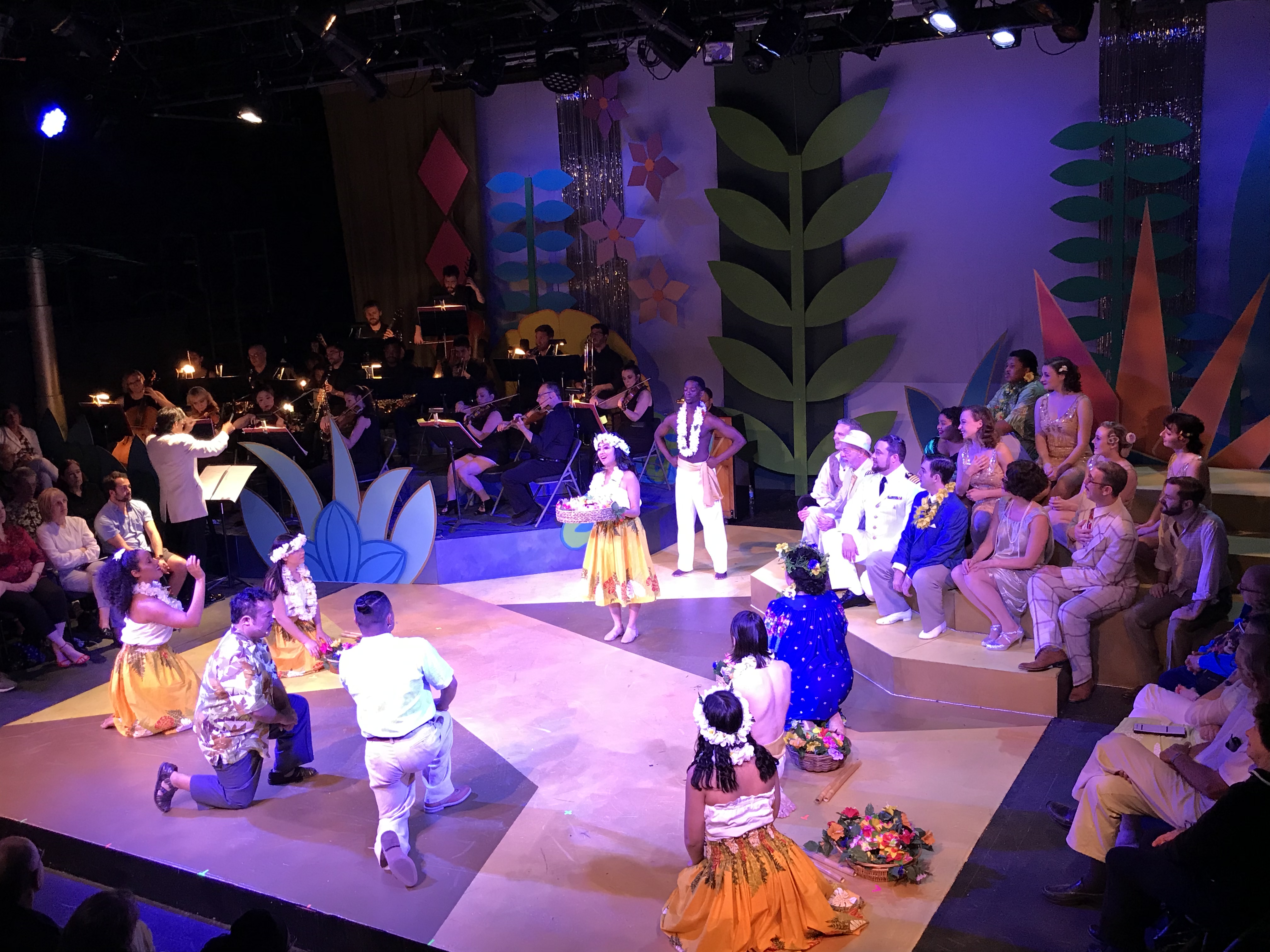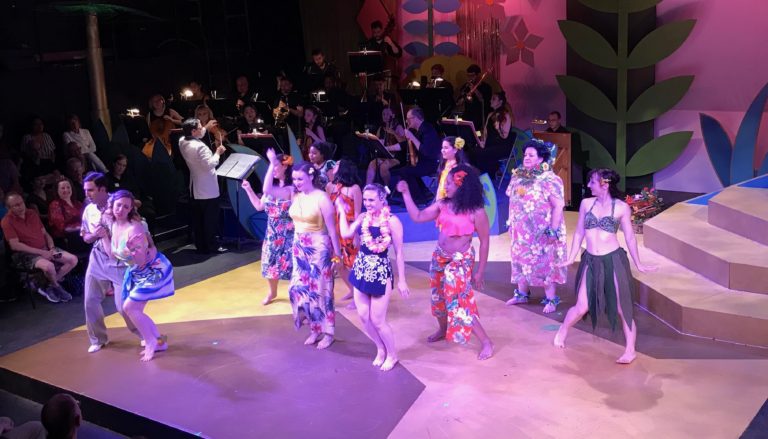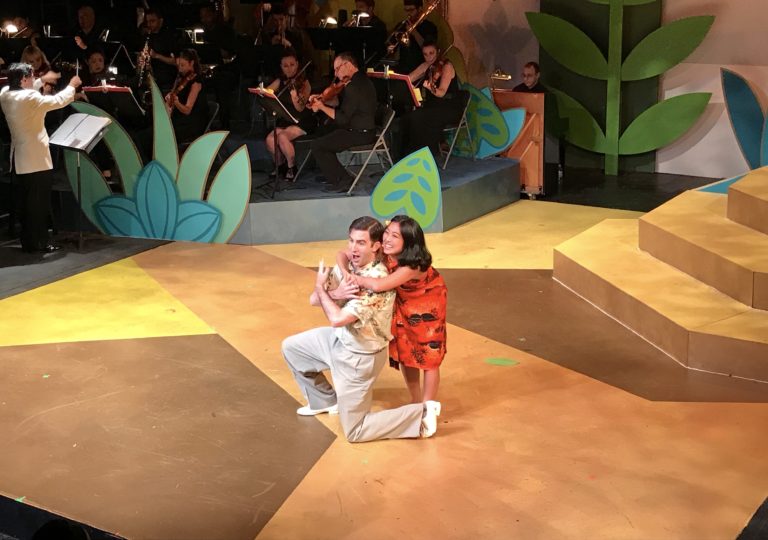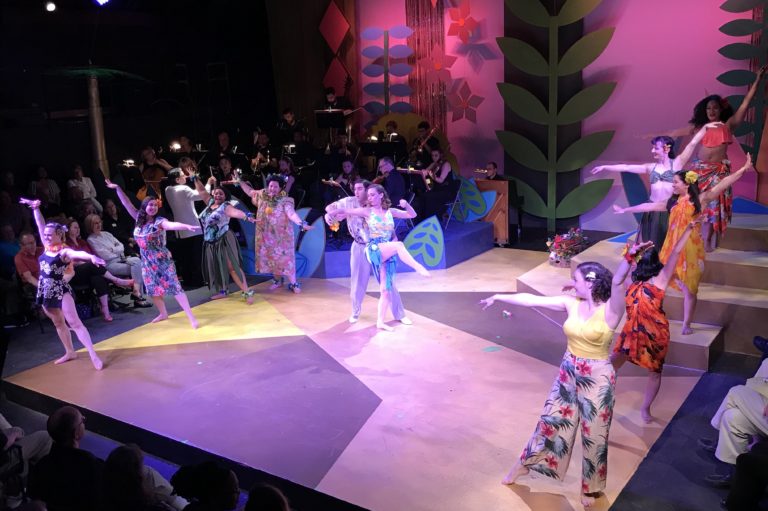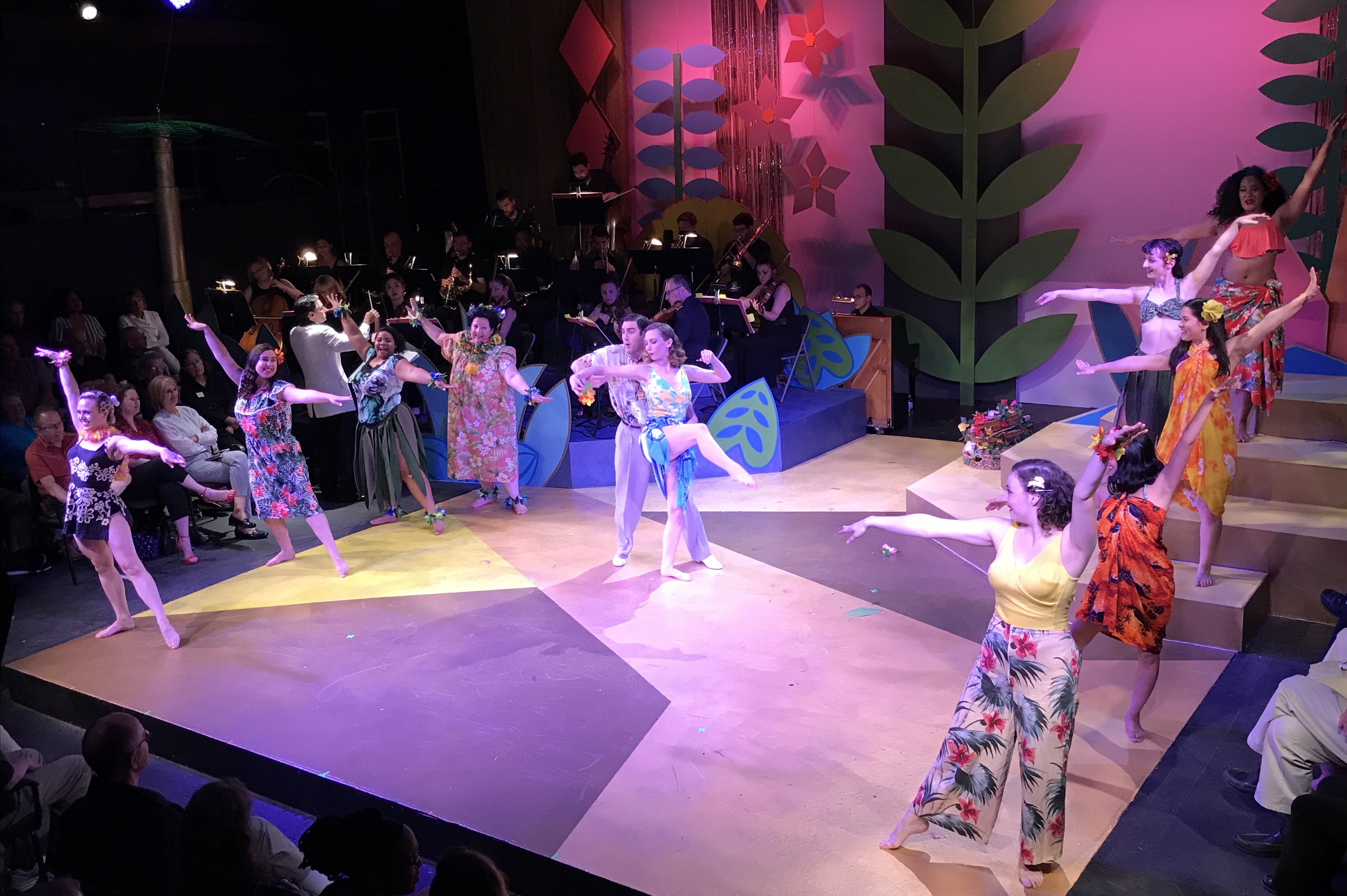Escape to paradise with Folks Operetta as we give the American premiere of Paul Abrahám’s jazz operetta, The Flower of Hawaii. Tinged with American jazz and Hawaiian guitar, Abrahám’s captivating score will take you back to the golden era of Hollywood musicals.
One of the brightest stars of the Weimar era, Abrahám was the composer of three-hit operettas between 1929 and 1932, as well as film scores and popular song. Jazz was all the rage, and Abrahám’s brilliant use of its catchy melodies and infectious rhythms, along with tap dancing and other typically American idioms, would breathe new life into operetta. Abrahám had a fresh, unique style and was considered the “successor to Lehar” before political events in Europe changed the course of his life.
Inspired by the story of Princess Ka’iulani, The Flower of Hawaii takes aim at American colonialism but never takes on that subject too deeply. In the end, it is meant to be escapist entertainment. The libretto features multiple love stories. Laya, a Hawaiian princess, must choose between the American naval officer she loves and the Hawaiian prince to whom she was betrothed as a child. Meanwhile, no less than three other couples must find their way through various romantic complications before all of them arrive at Happily Ever After.
In 1933 he was forced to flee Germany overnight after the Nazis seized power. He left behind a safe full of manuscripts that his butler promptly sold to Nazi music publishers. The songs were published and performed under different names and Abrahám was never credited for them. Abrahám spent the next five years in Vienna and Budapest, but by 1938, the situation for a Jewish composer was untenable in those cities as well. He left Europe altogether, eventually landing in New York. Although he was now physically safe, Abrahám was assailed by a new adversary, mental illness. He spent 10 years in the Creedmoor Psychiatric Hospital.
The Flower of Hawaii will be the second operetta we perform as part of our Reclaimed Voices series. Abrahám wrote the operetta in 1931 with the Jewish librettists Alfred Grünwald and Fritz Löhner-Beda, both of whom had penned successful shows with Franz Lehár and Emmerich Kálmán. The show premiered later that year in Leipzig, Germany. The original cast featured the Hungarian Jewish operetta stars Rosy Barsony and Oskár Denes and made them stars overnight. Like Abrahám, Grünwald escaped to the United States. Barsony and Denes survived the war in hiding. Löhner-Beda was killed at Auschwitz.
The Flower of Hawaii will be our second production of an operetta by Paul Abrahám. We performed and recorded Ball at the Savoy in 2014; we are currently in the post-production phase of the recording, which we hope to release this year.

